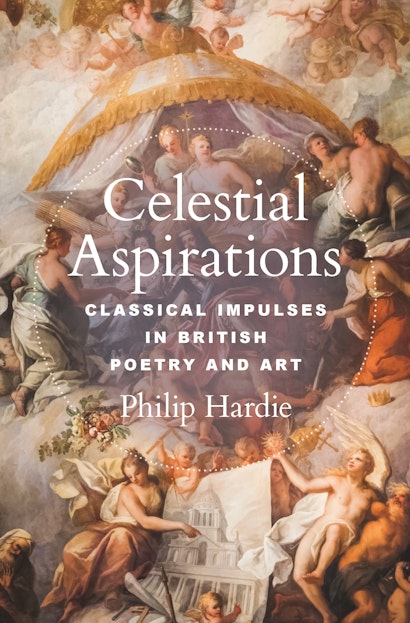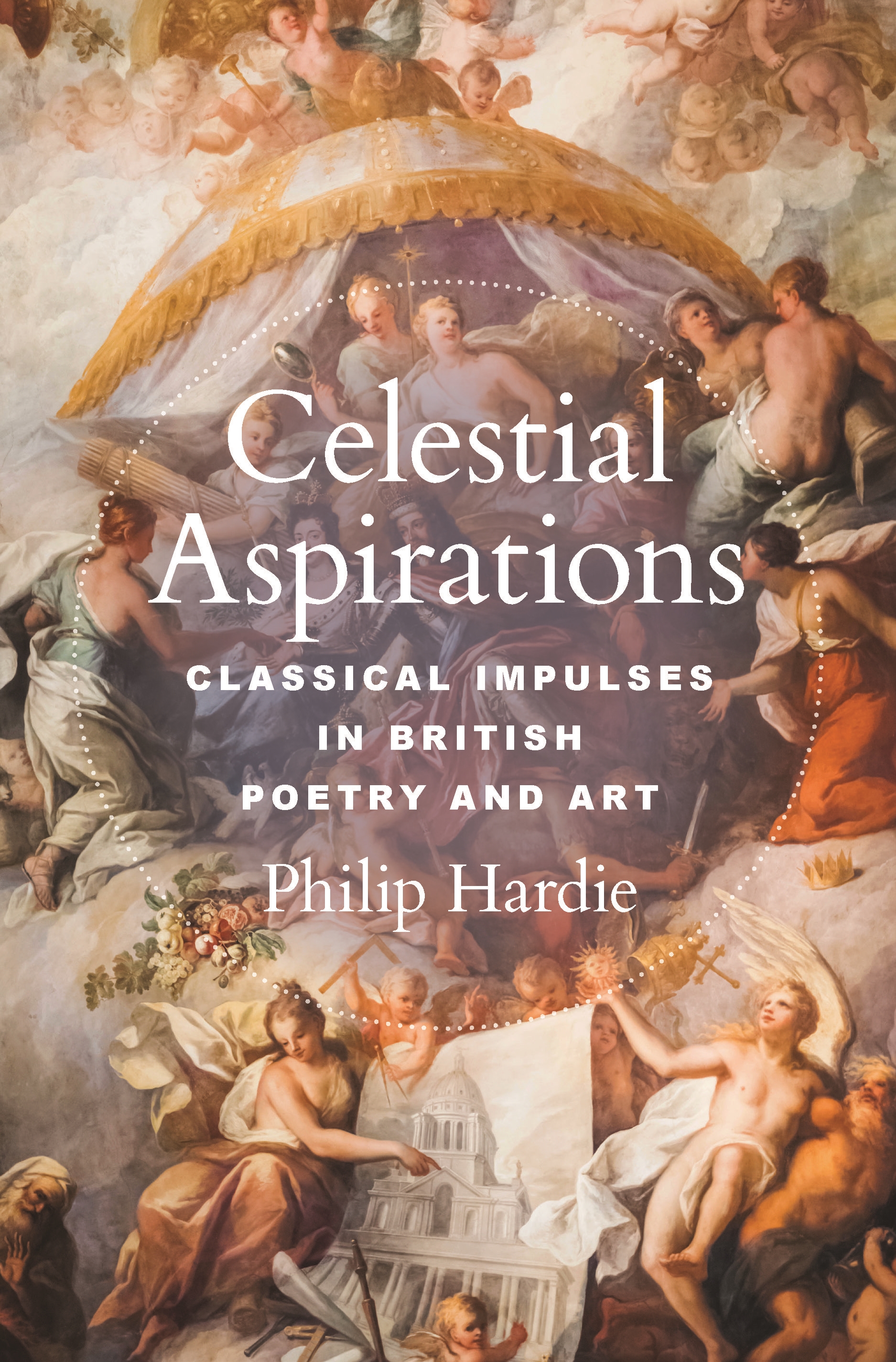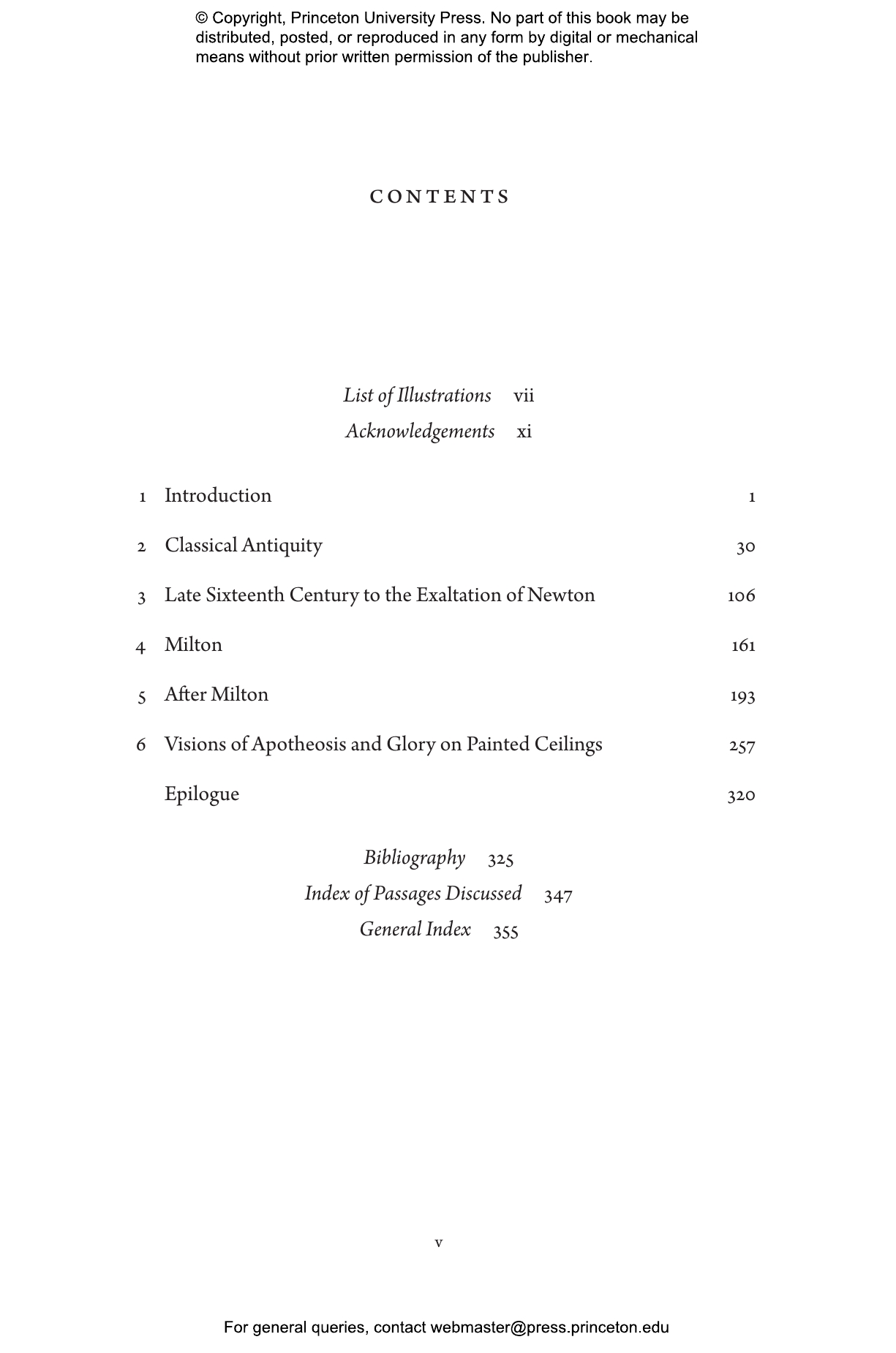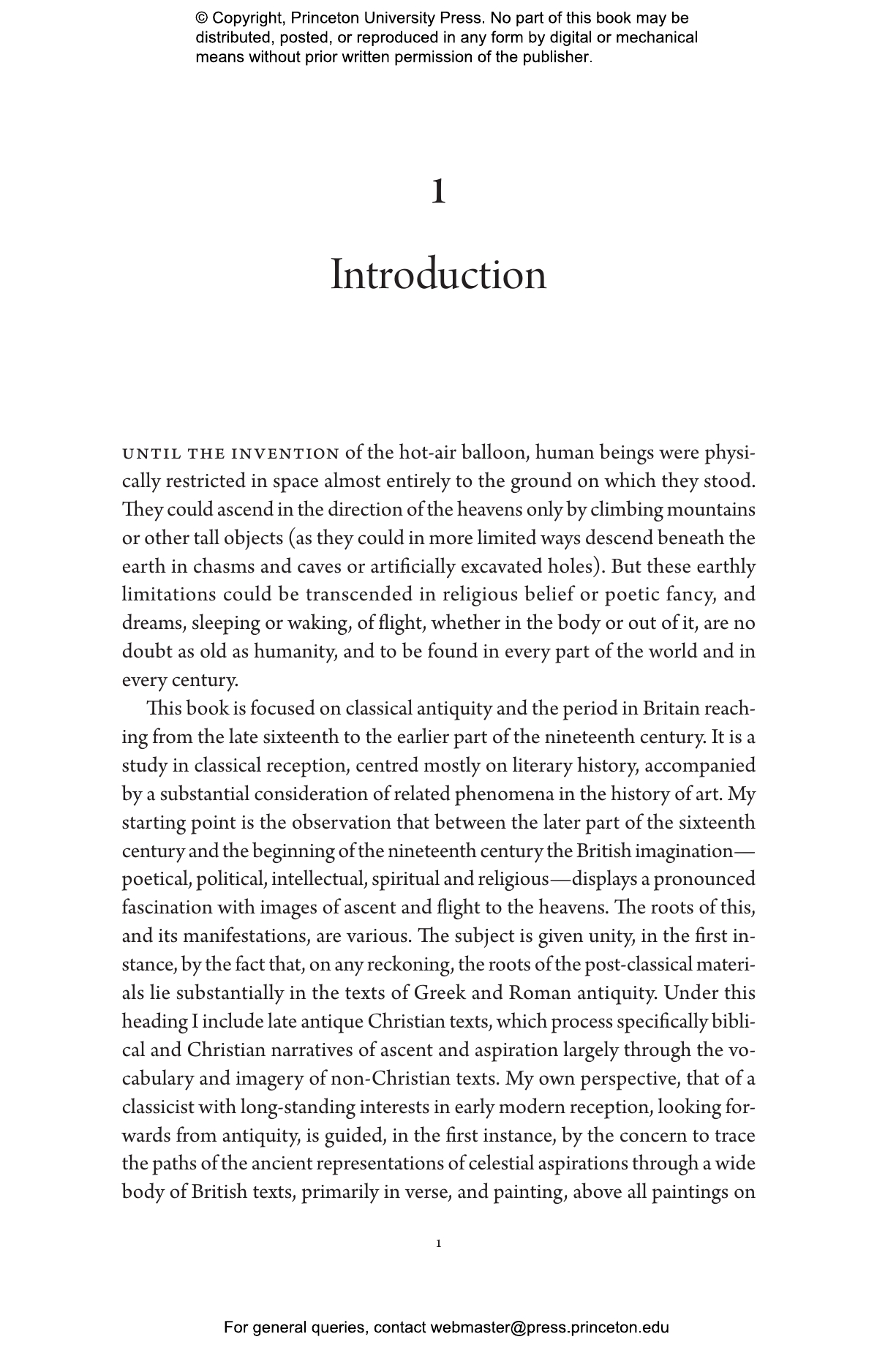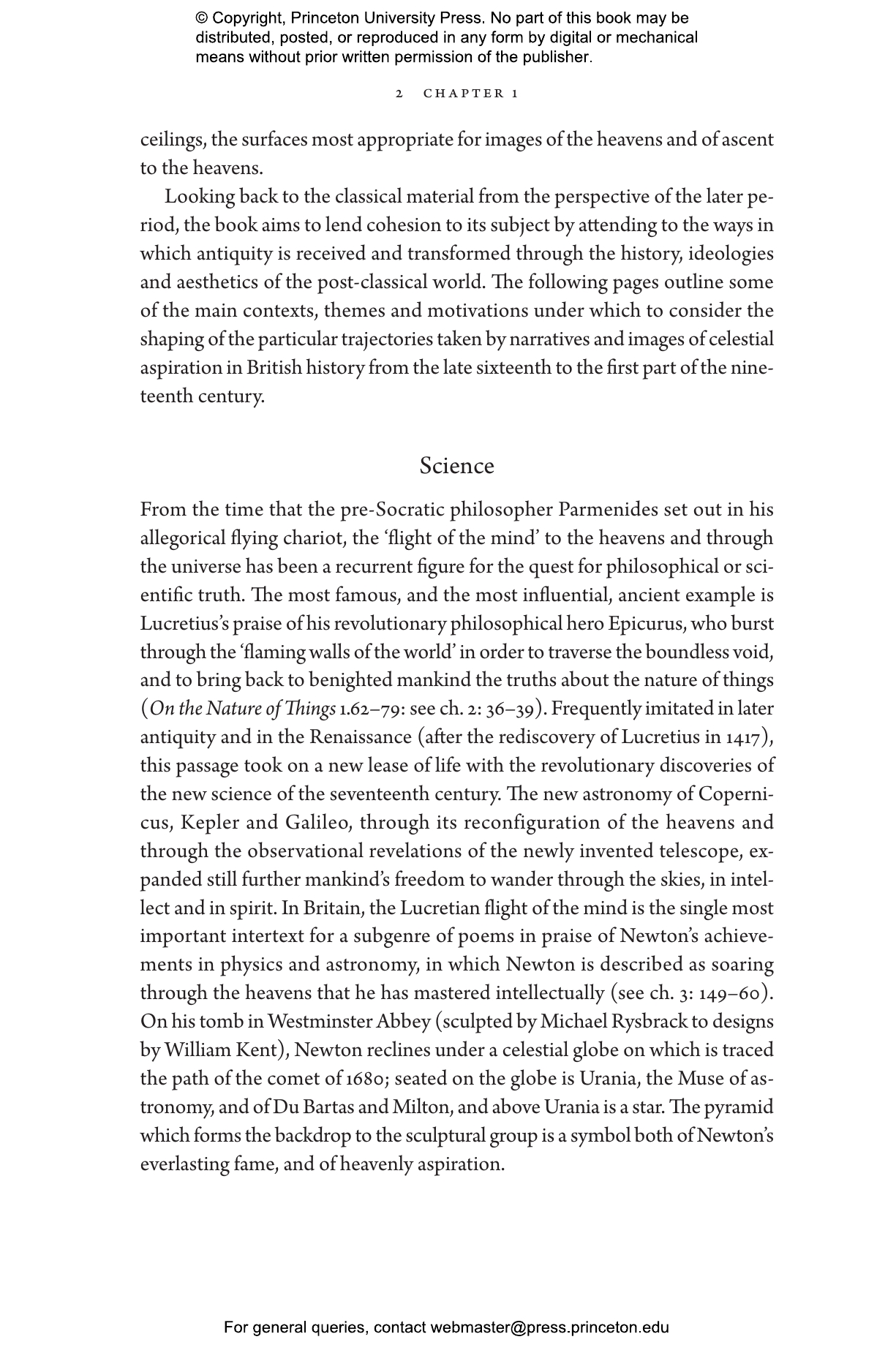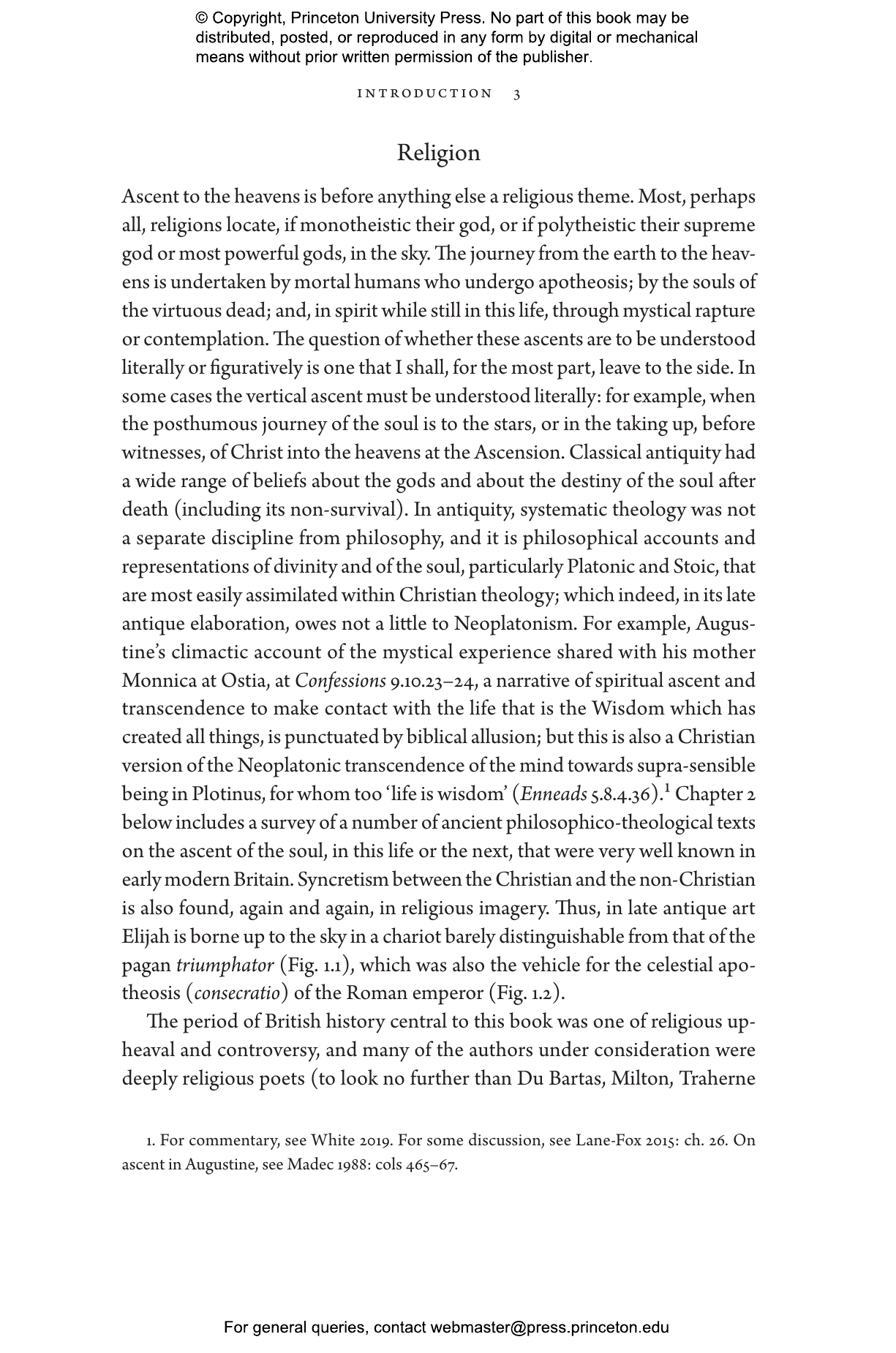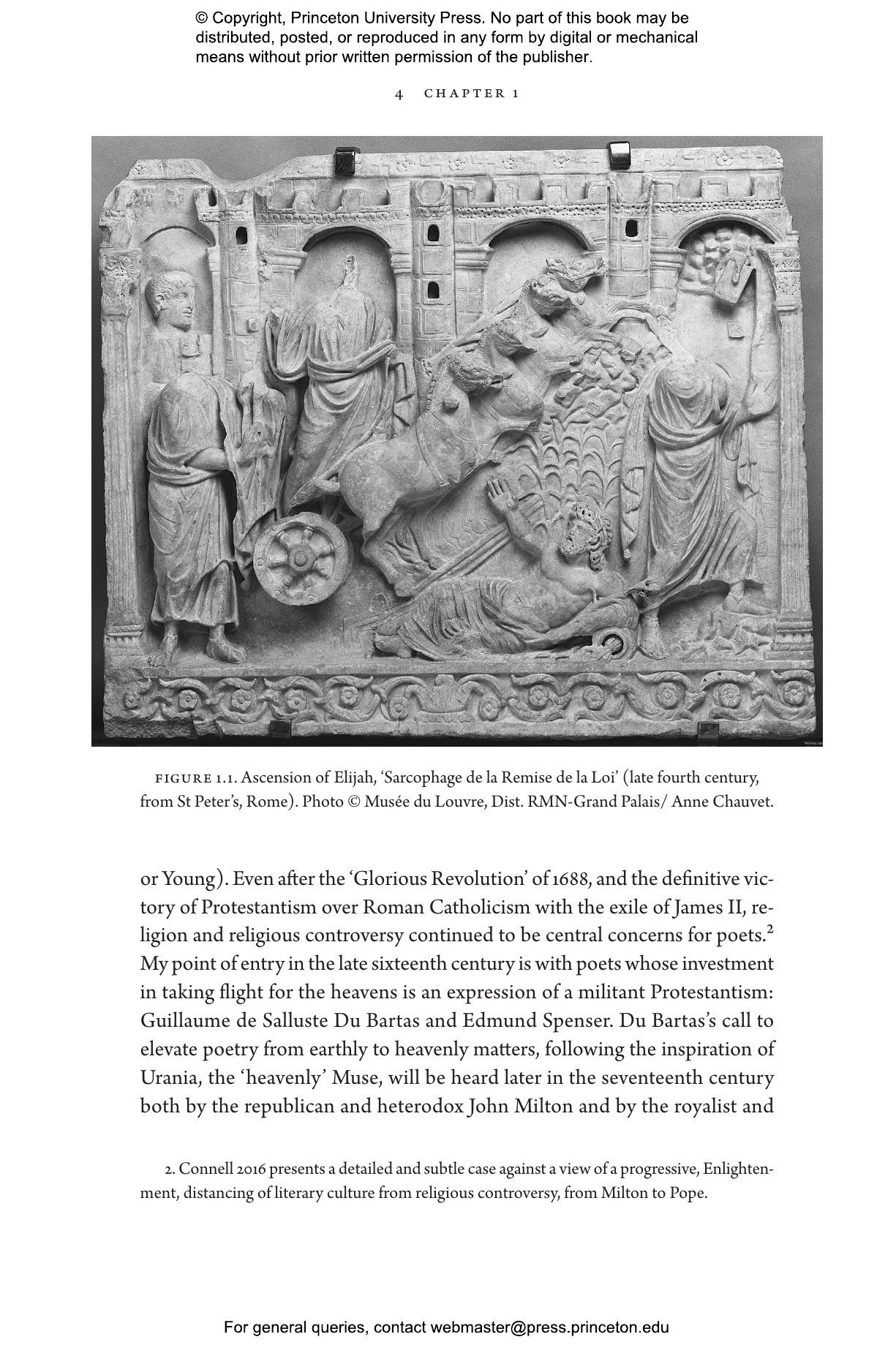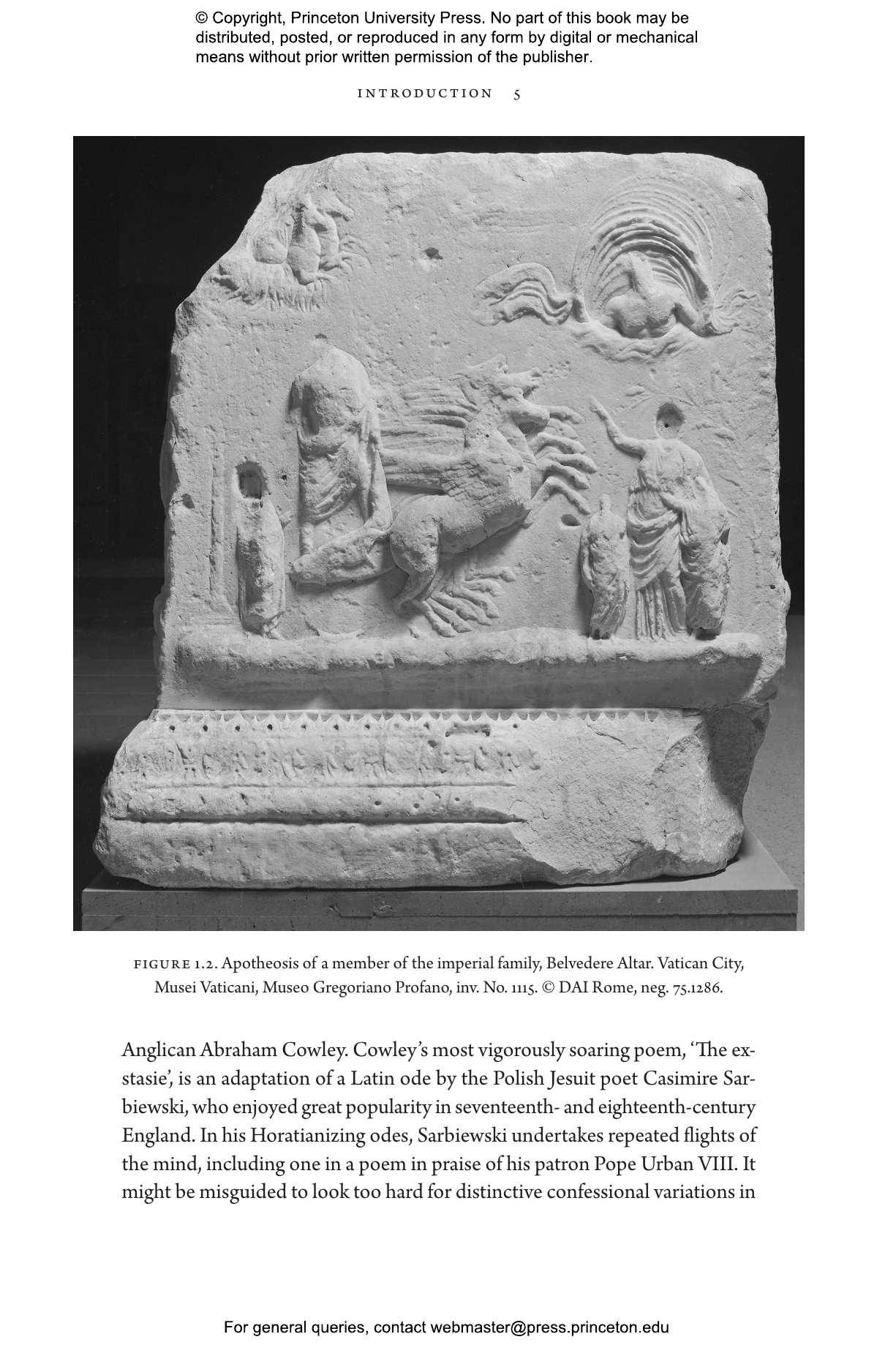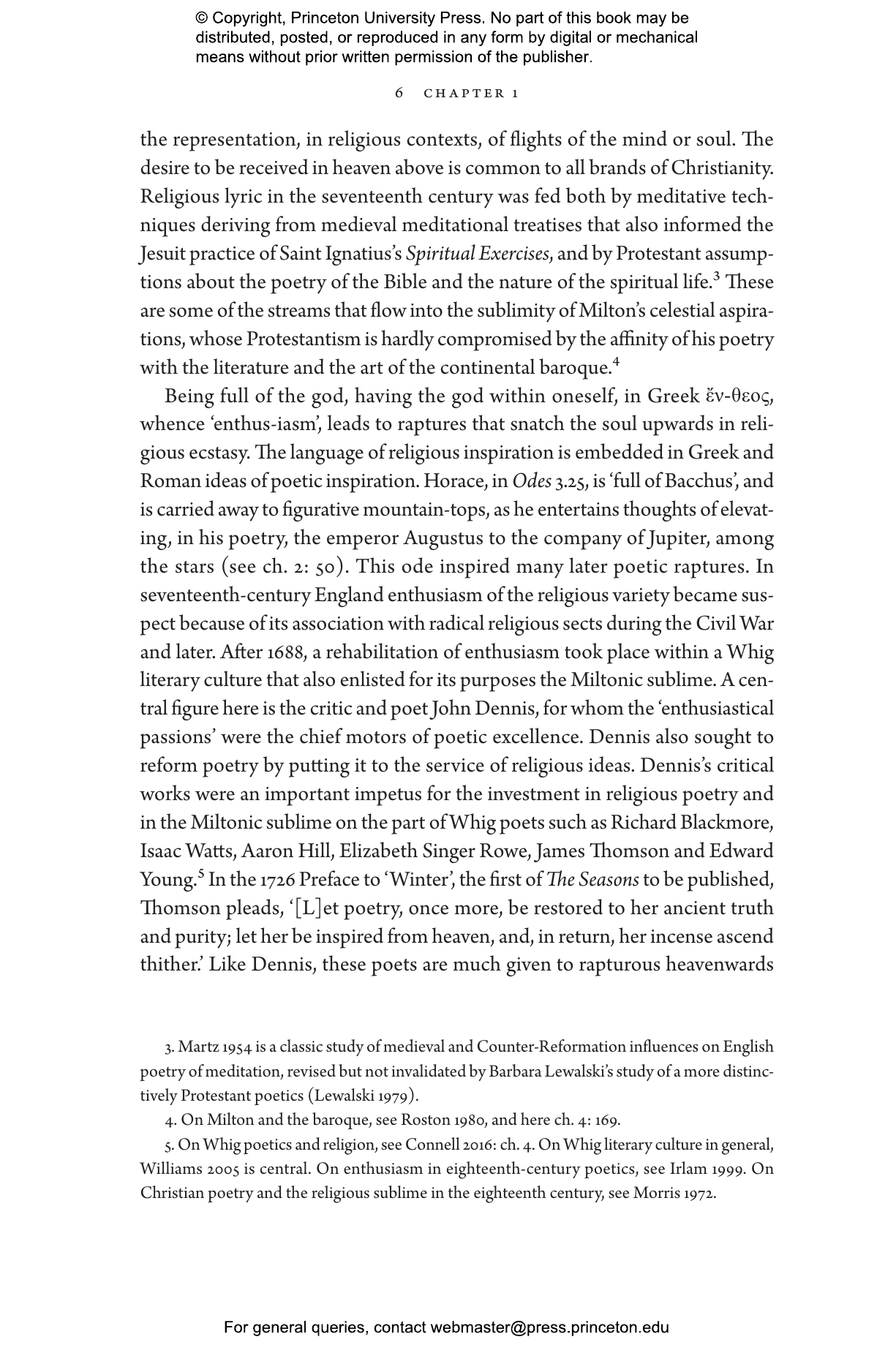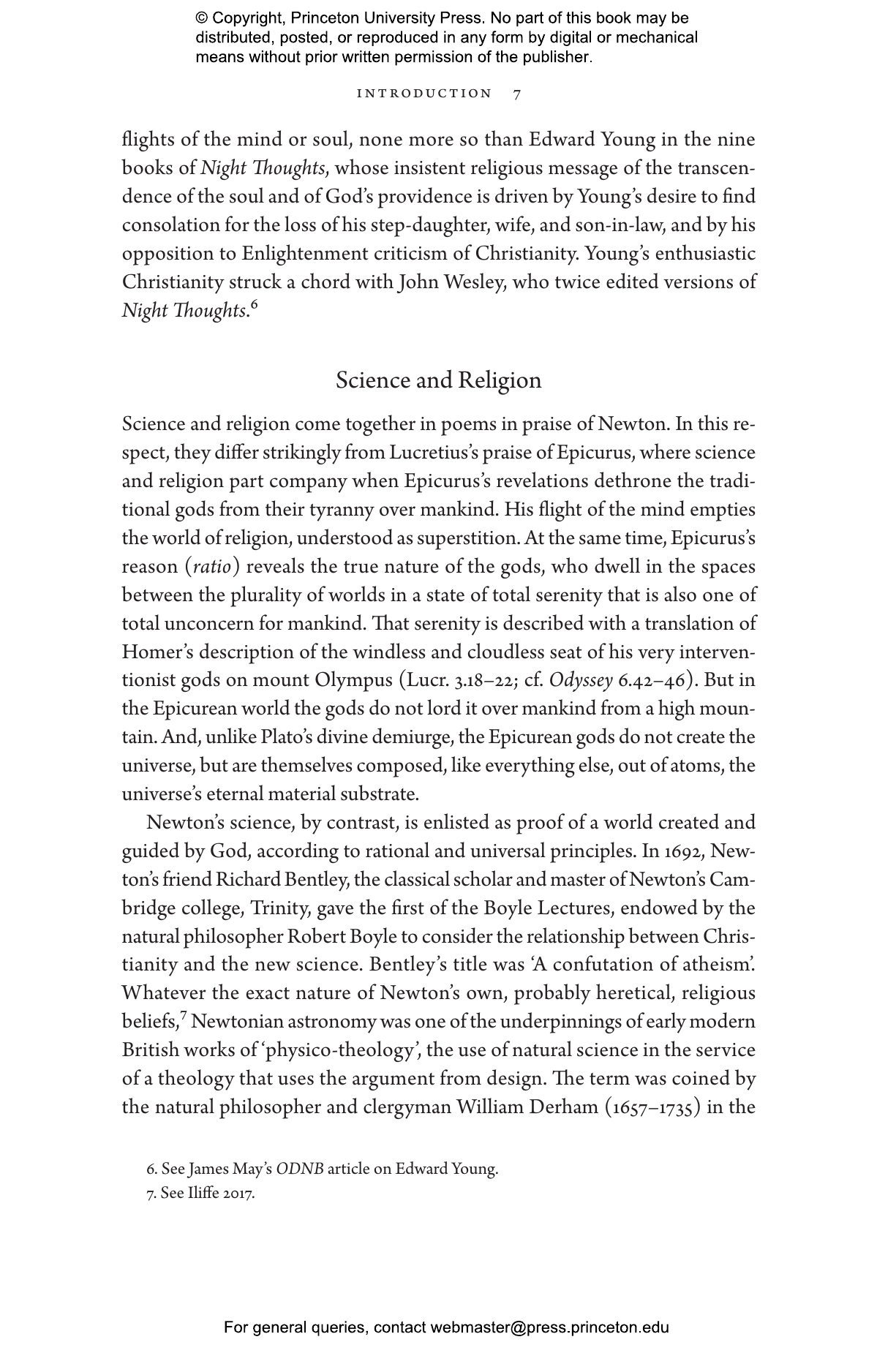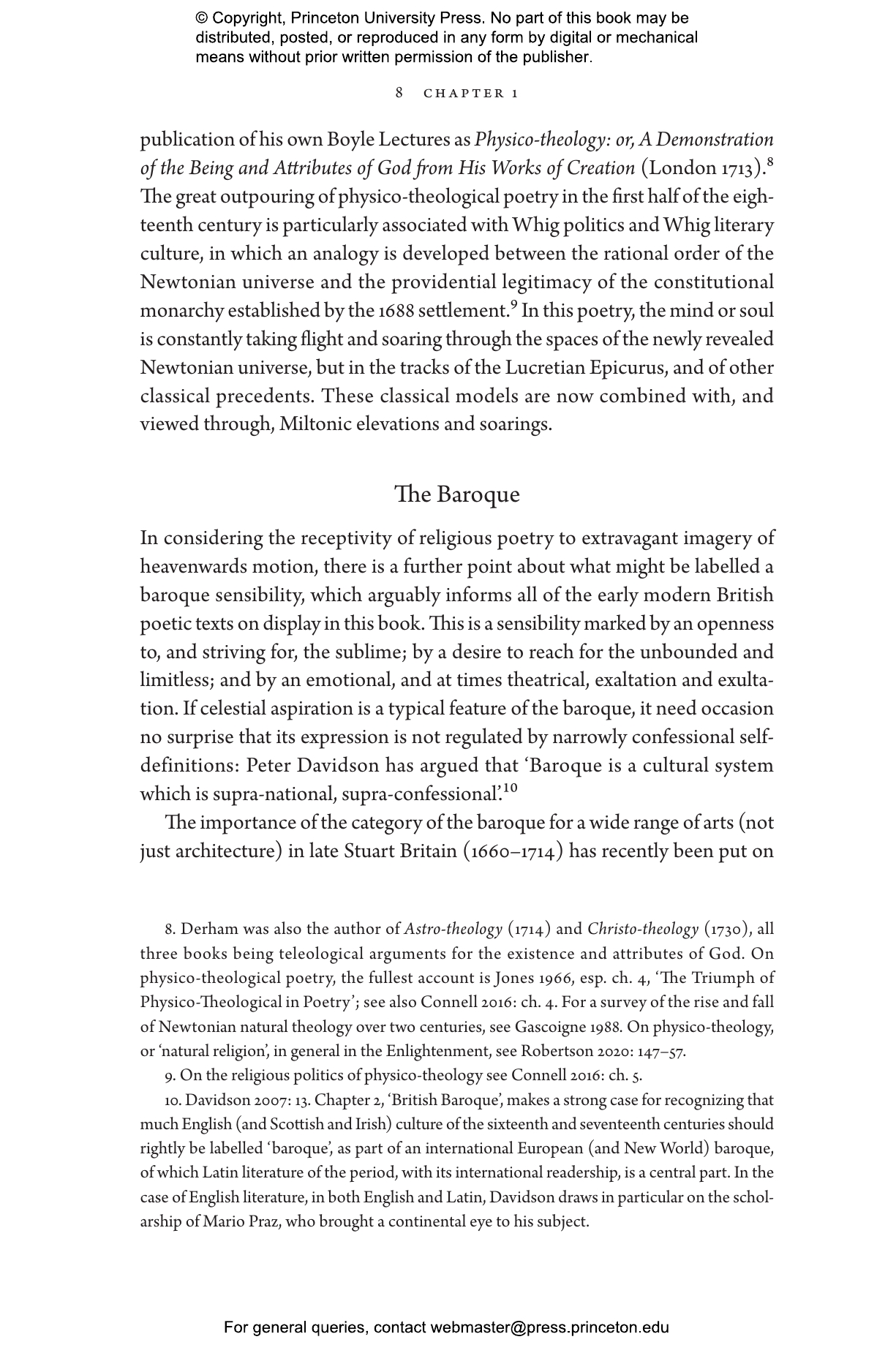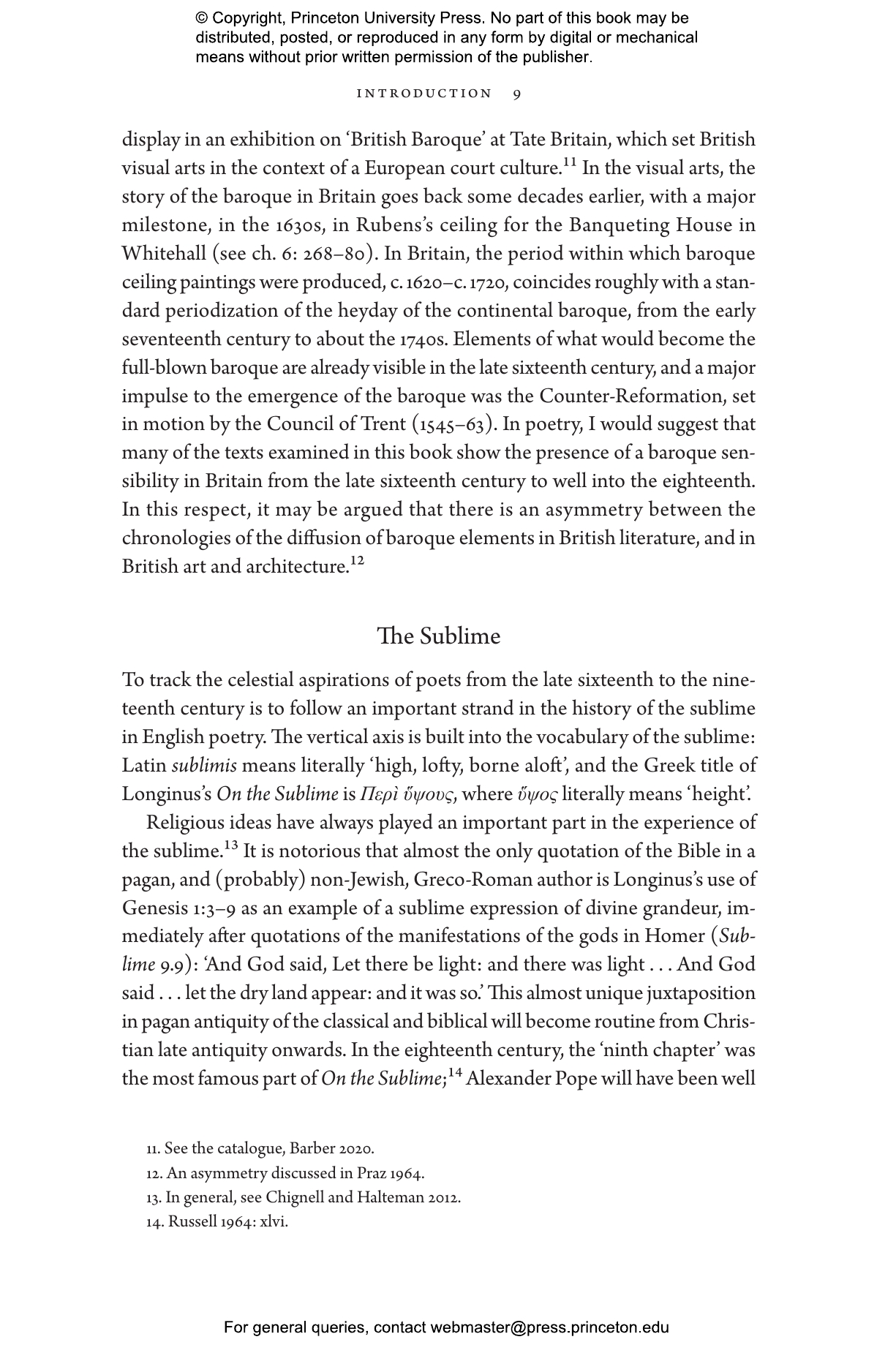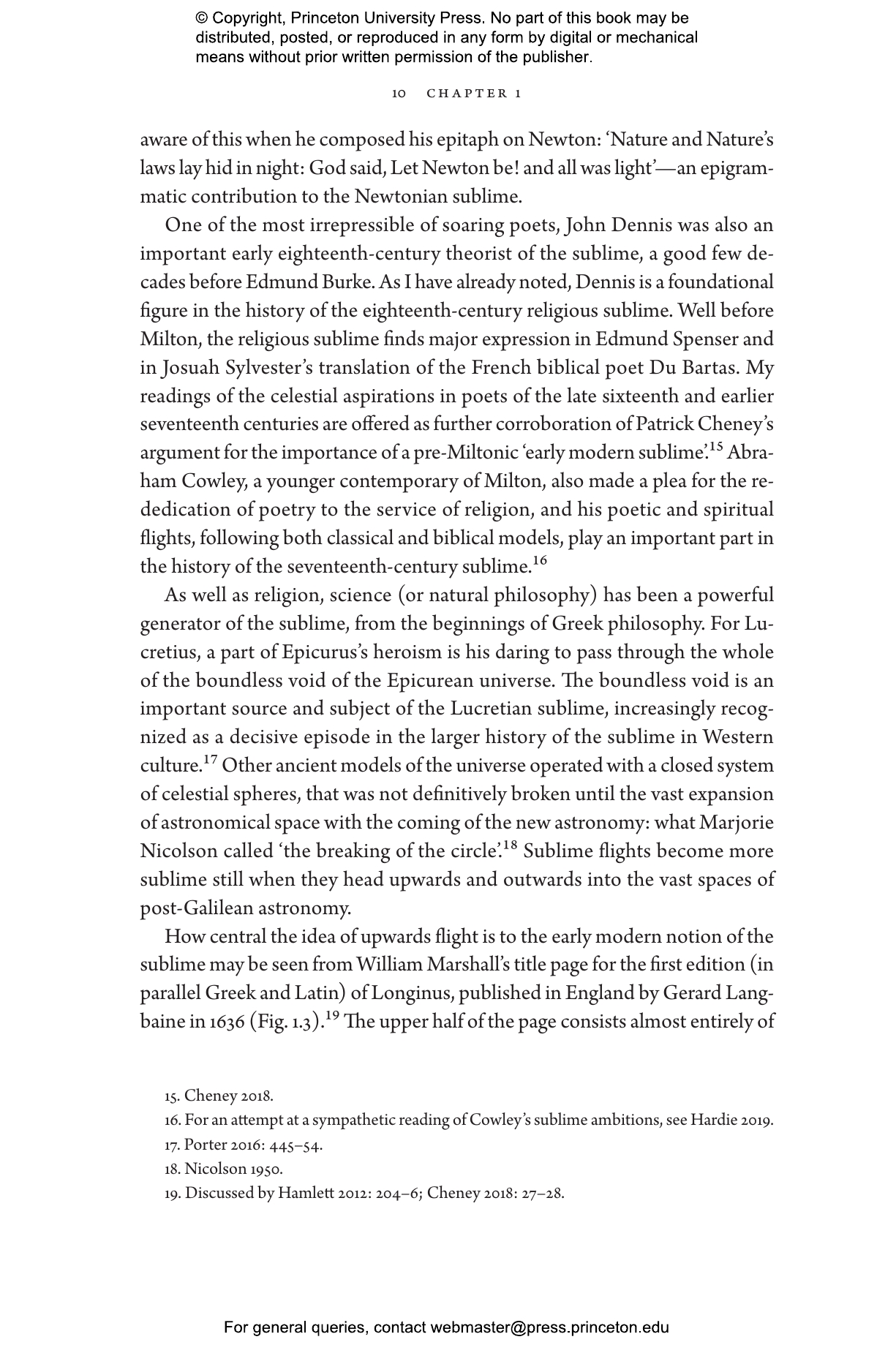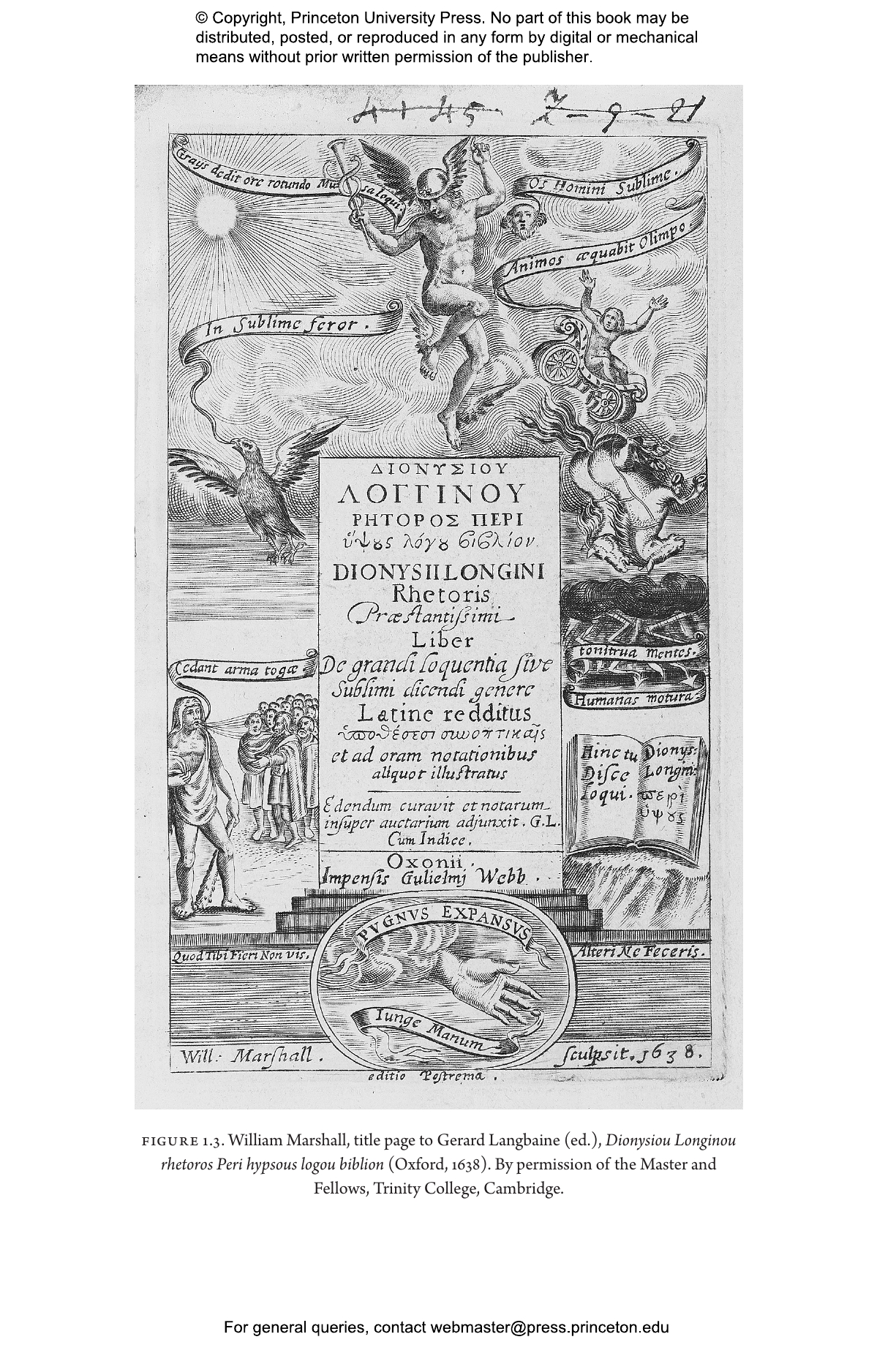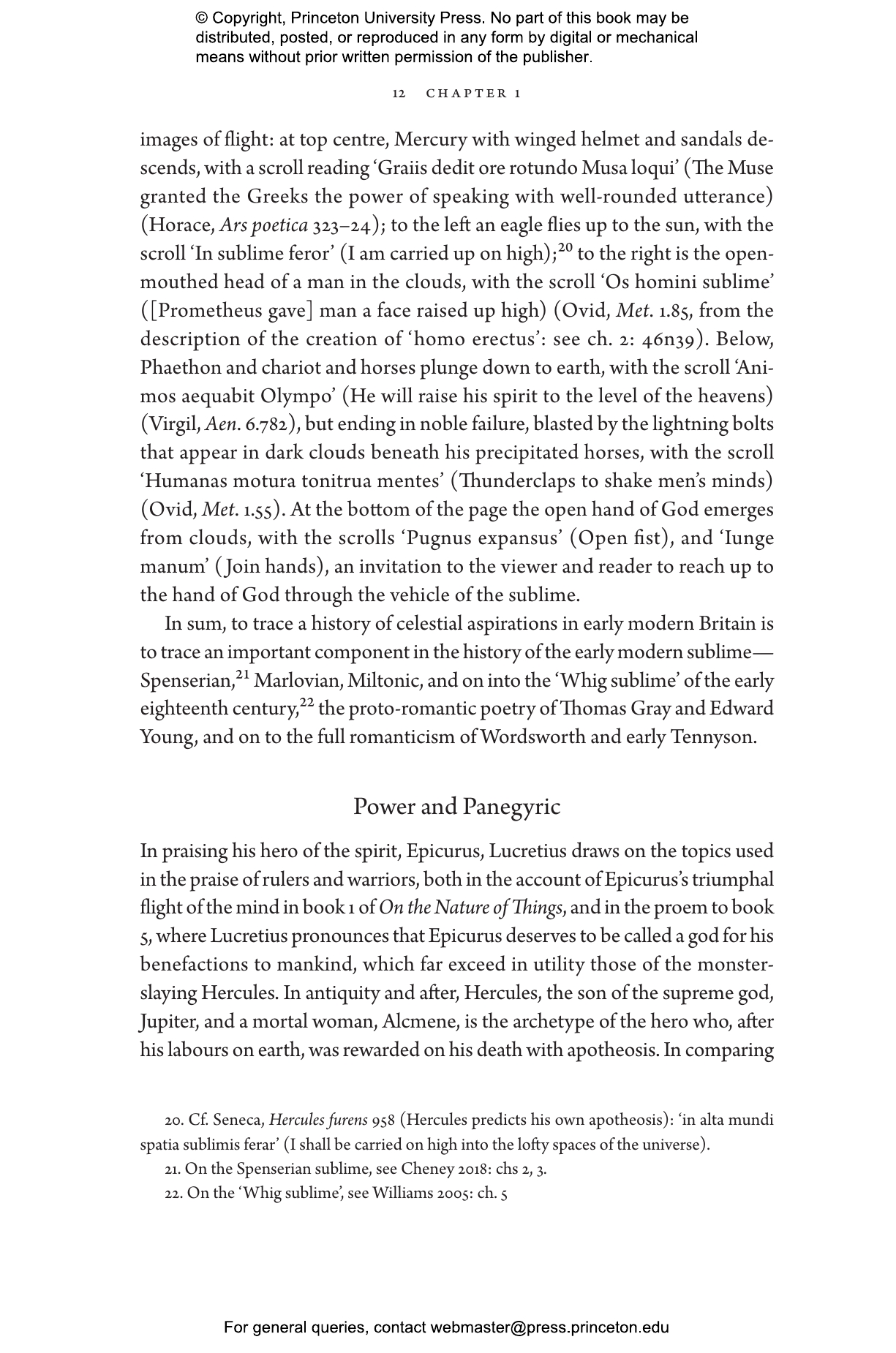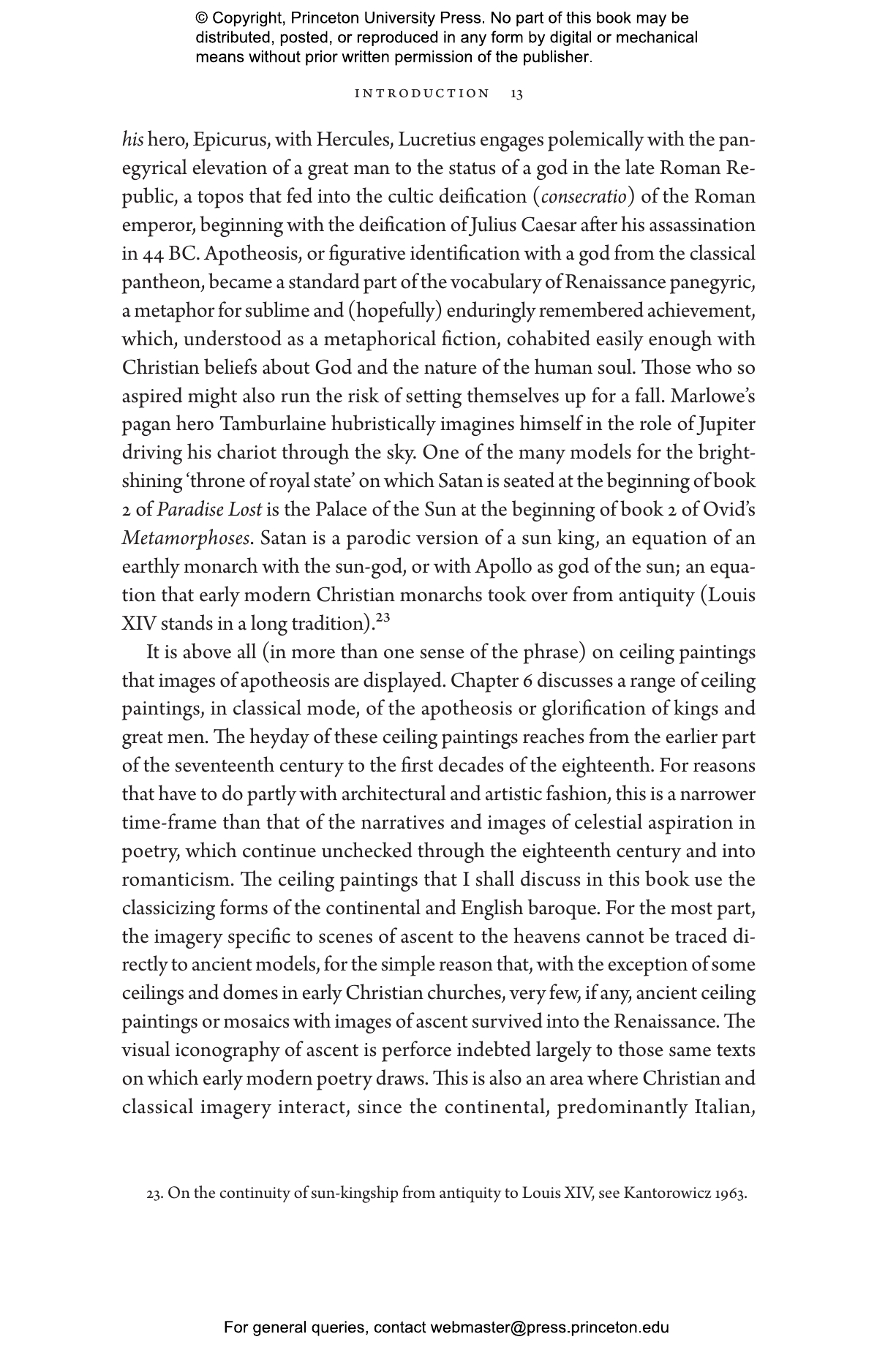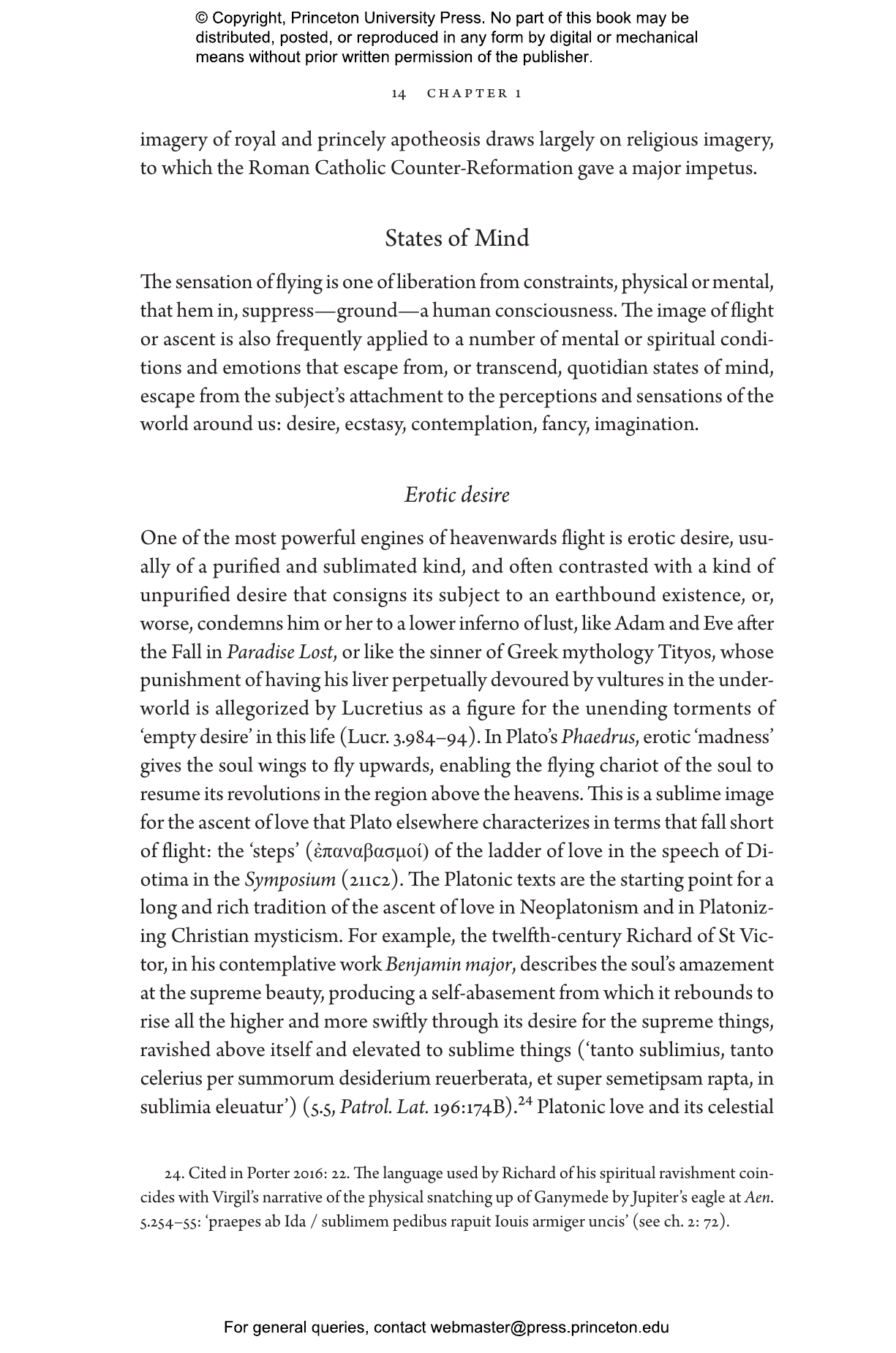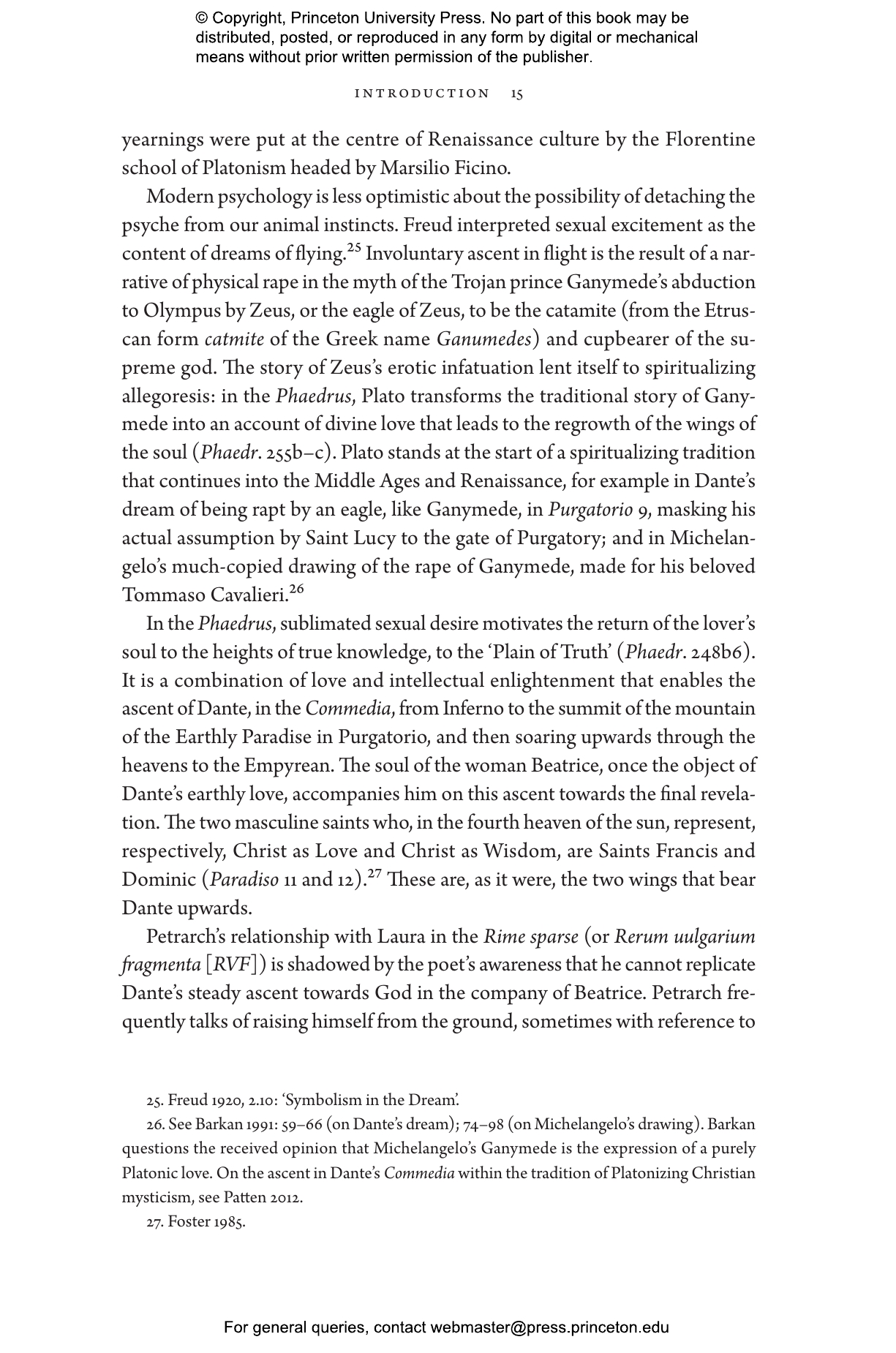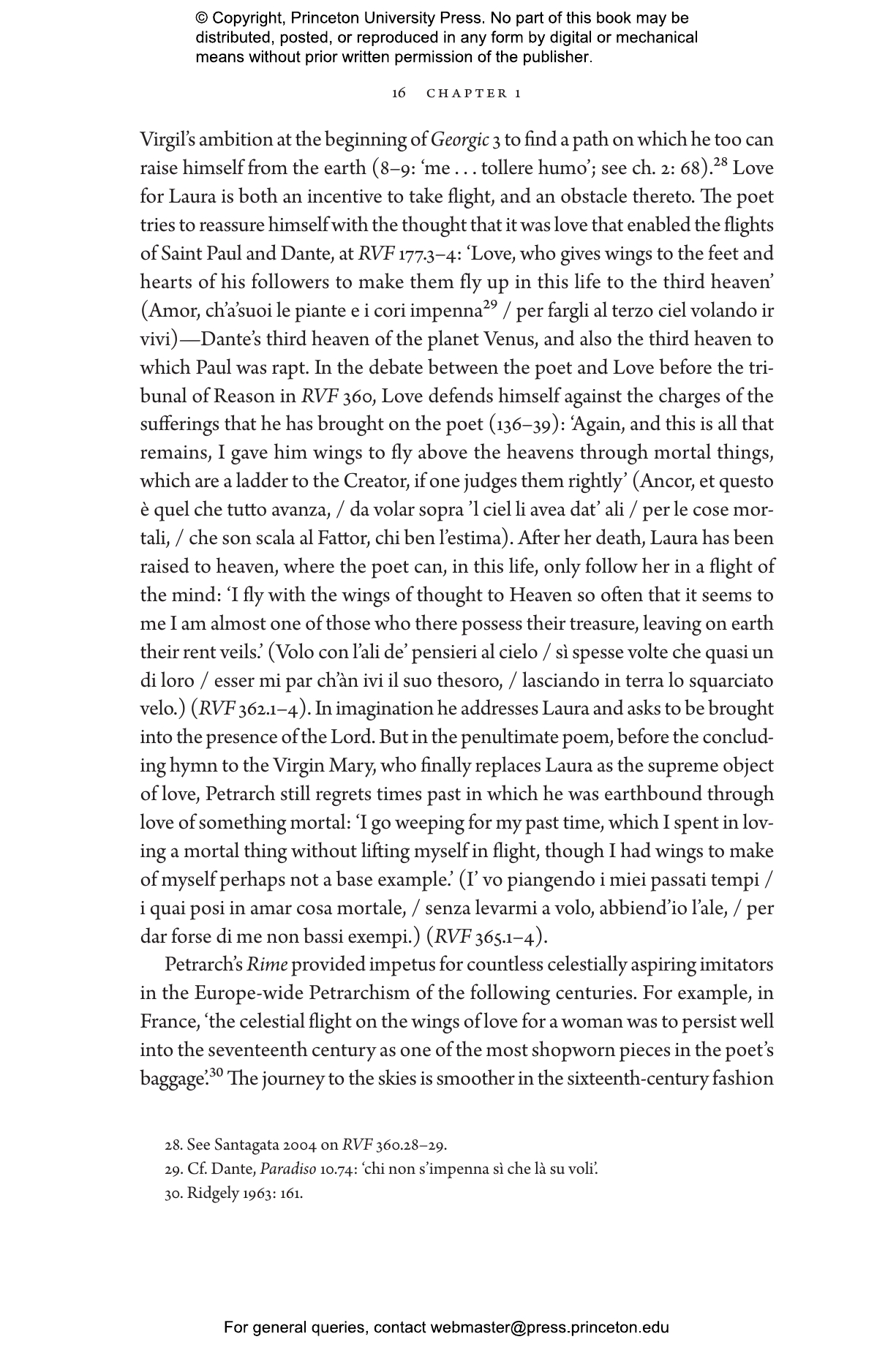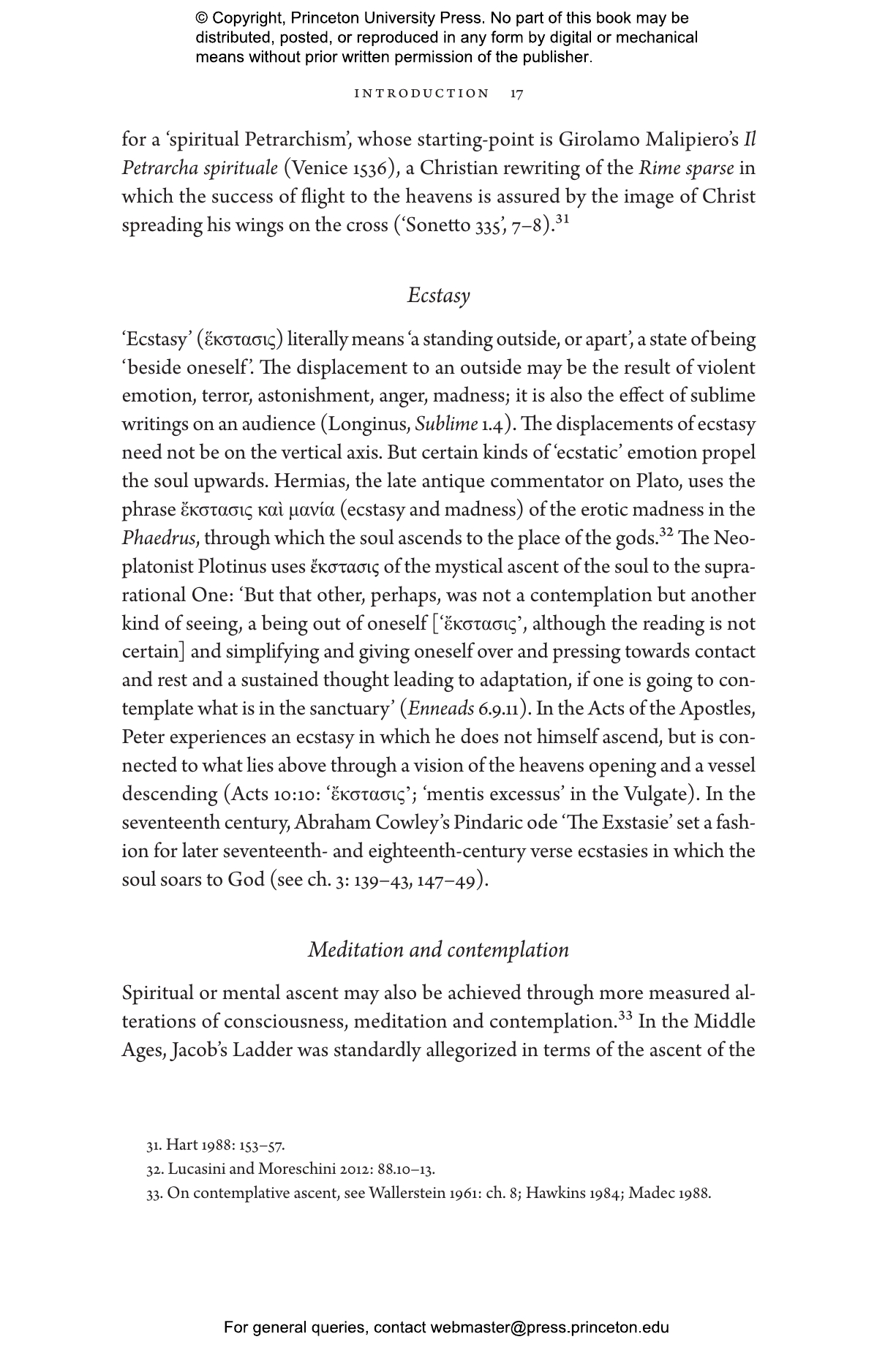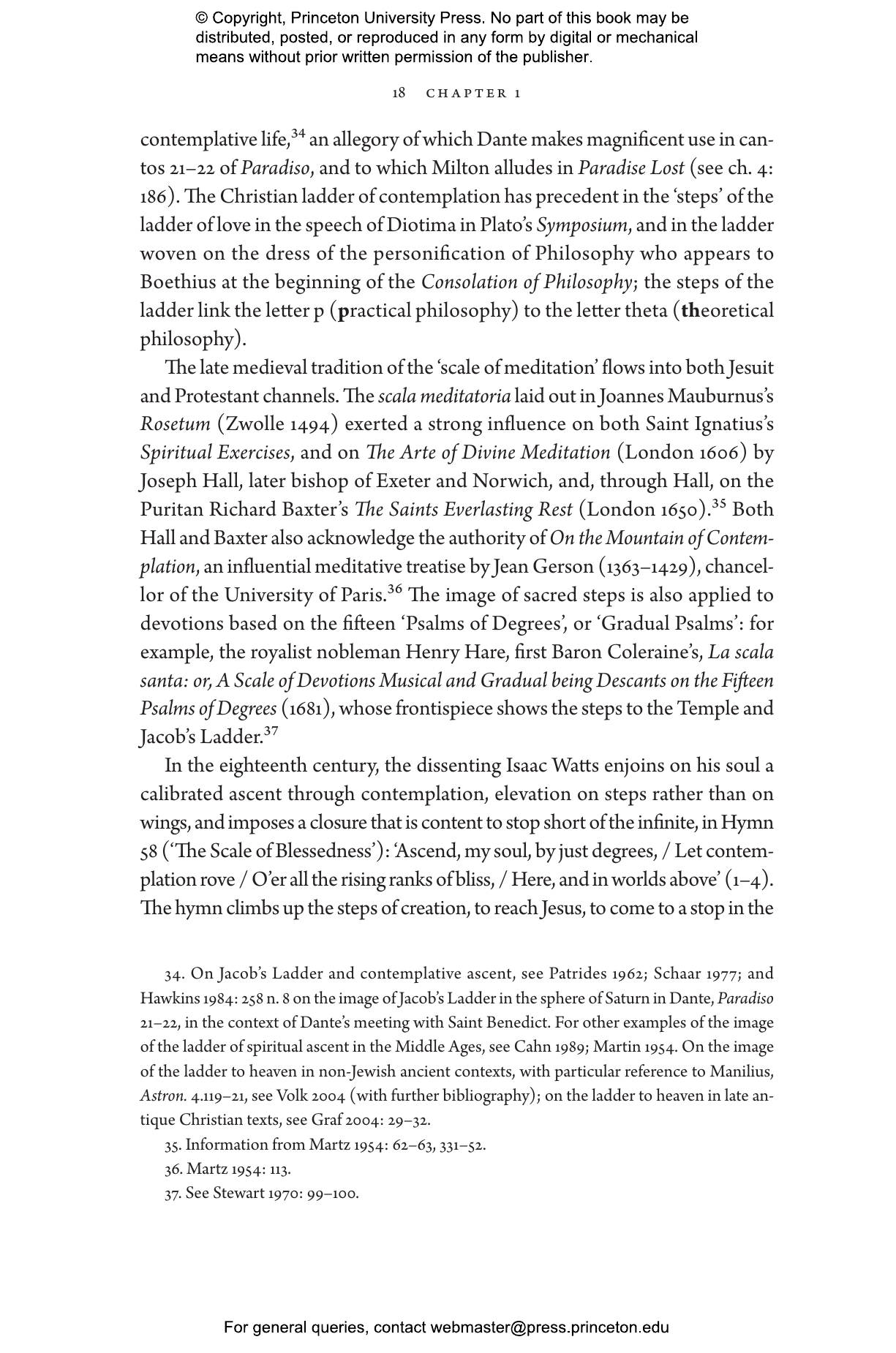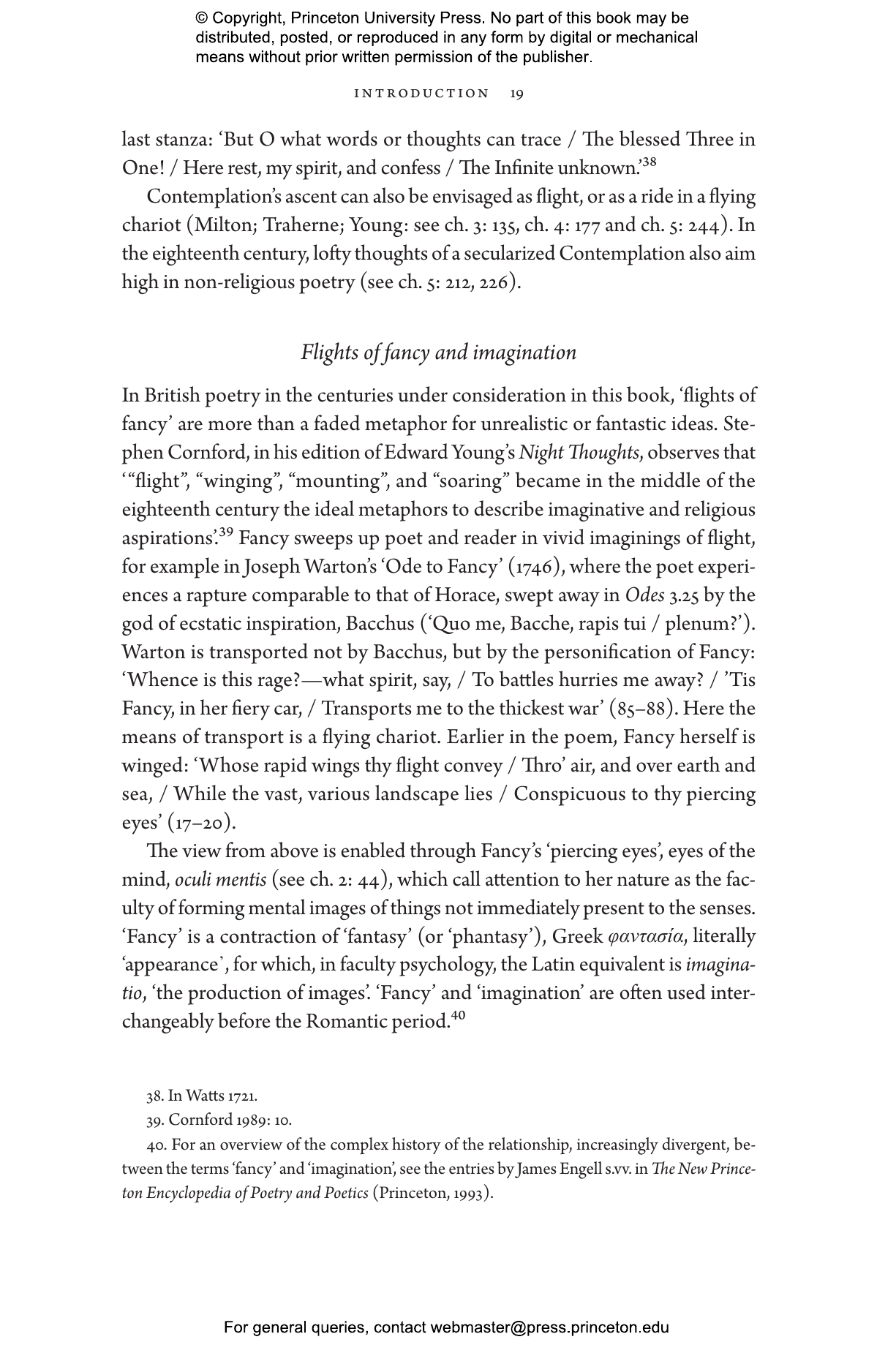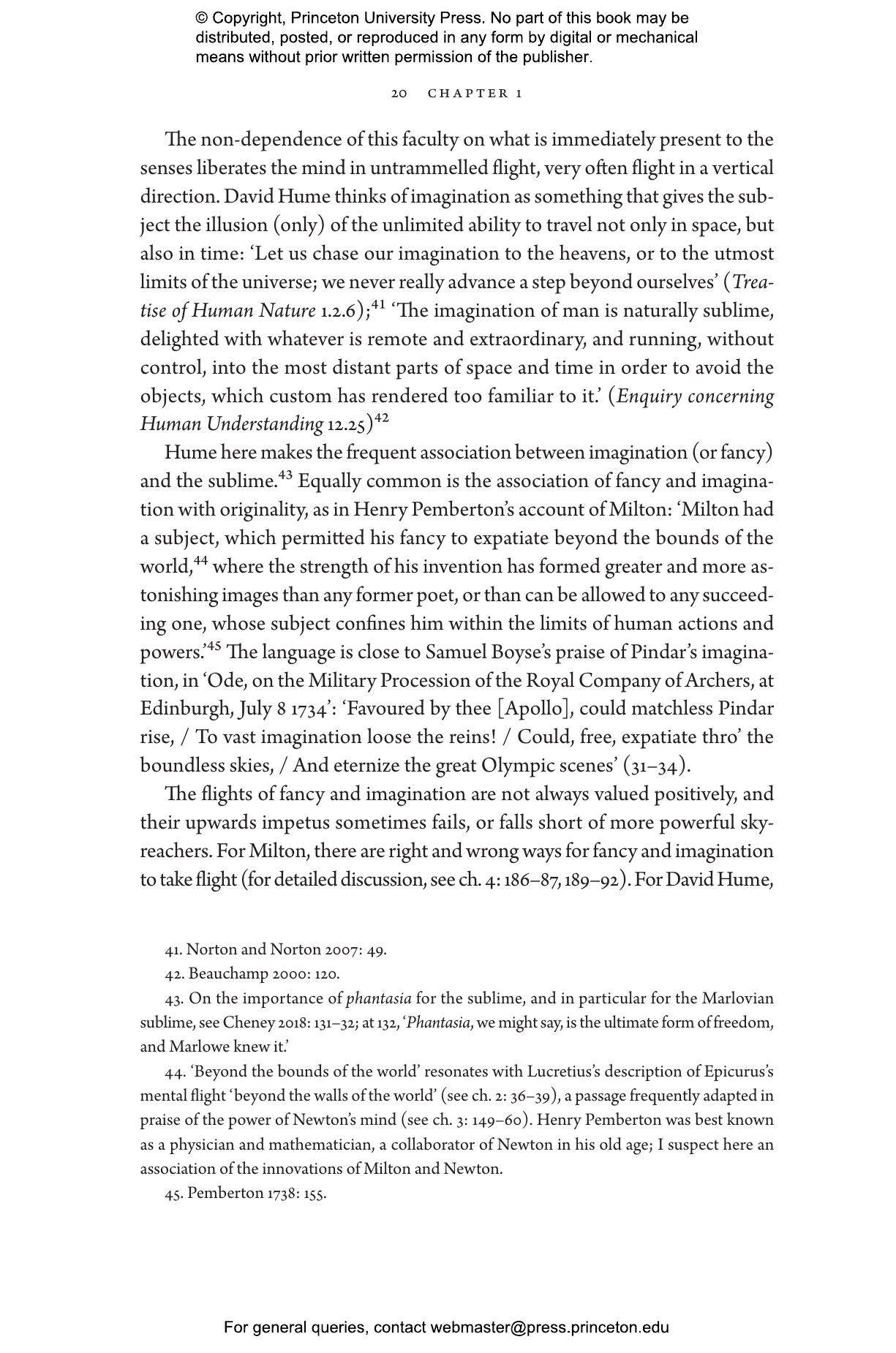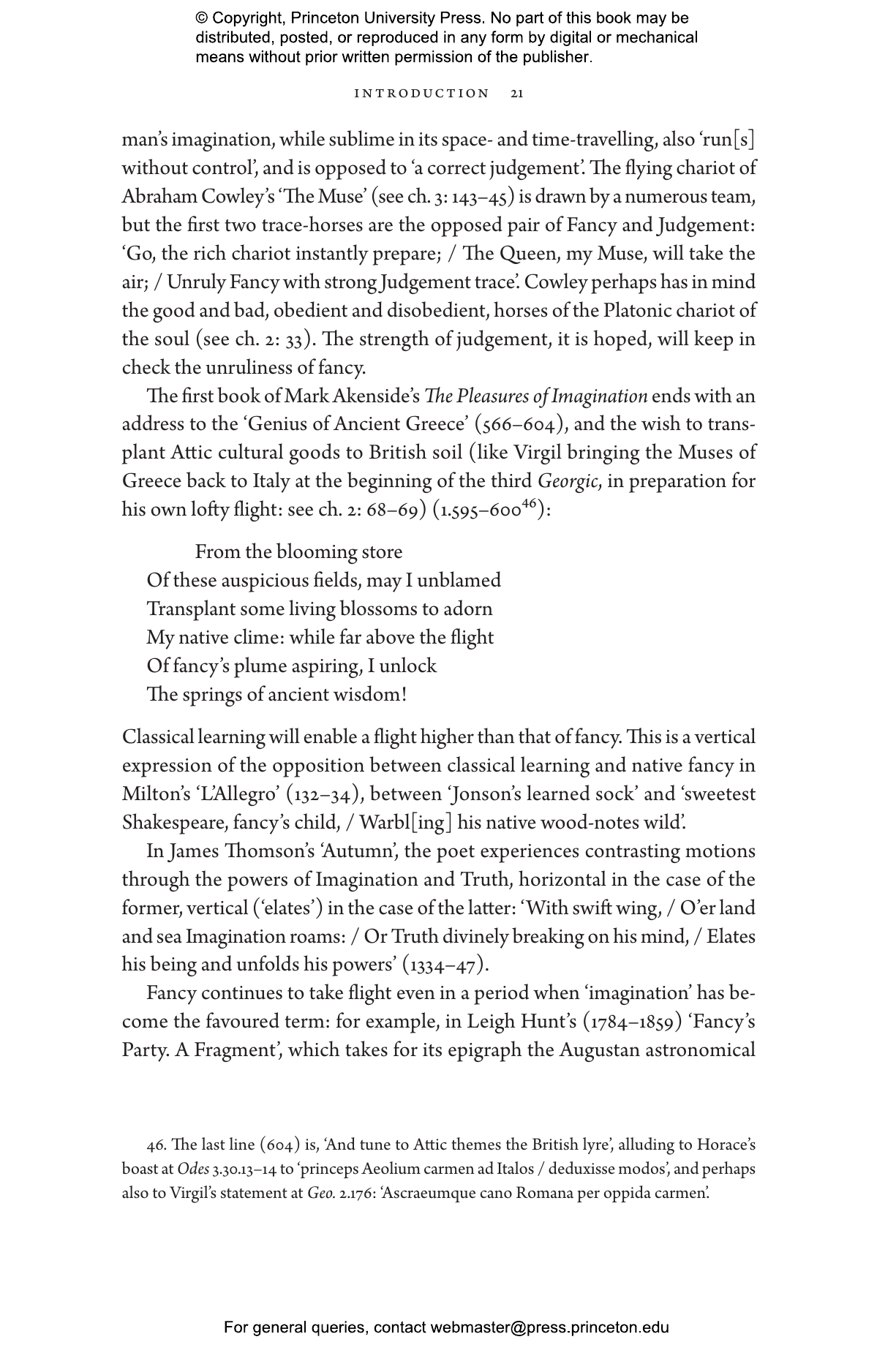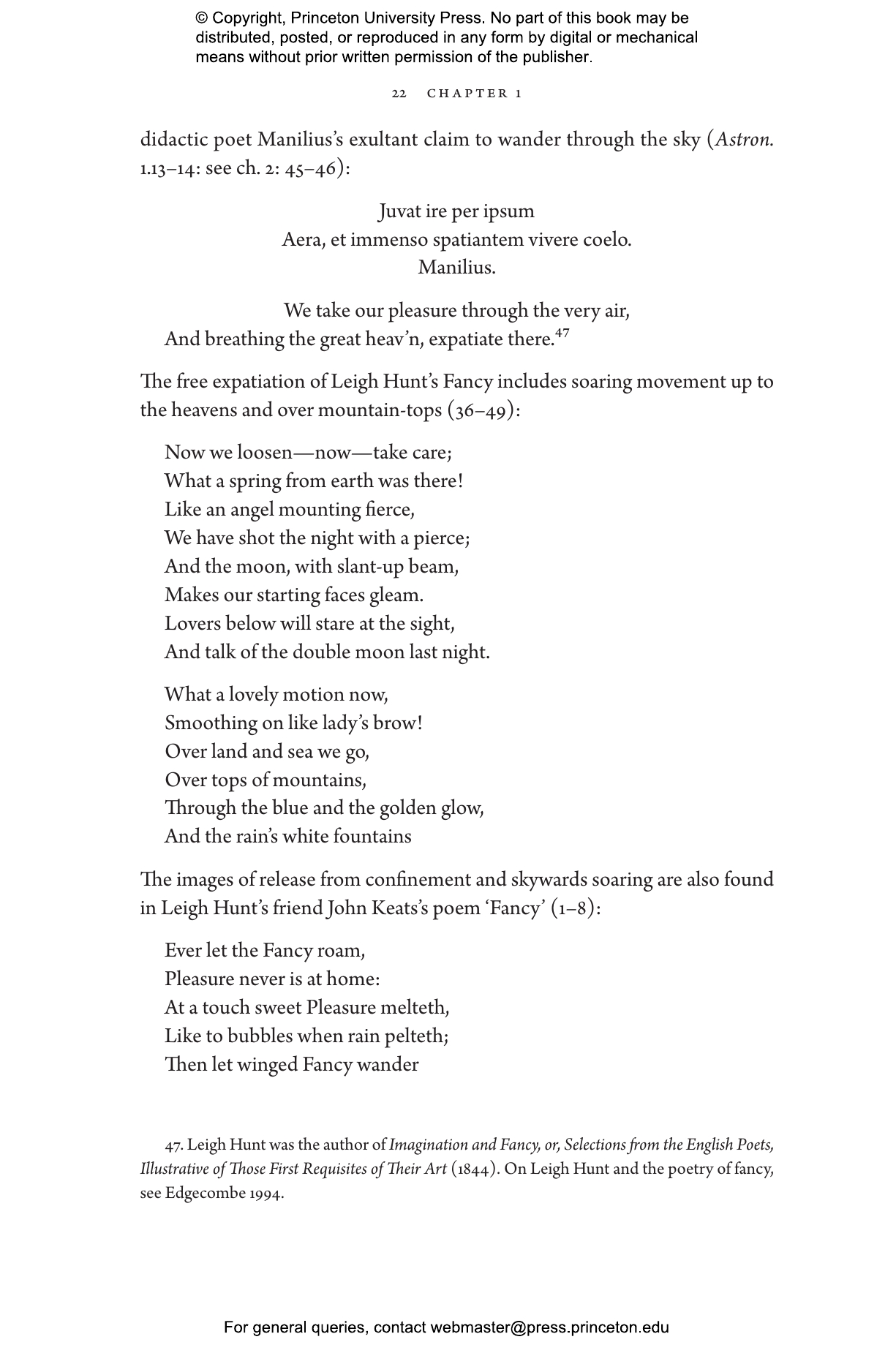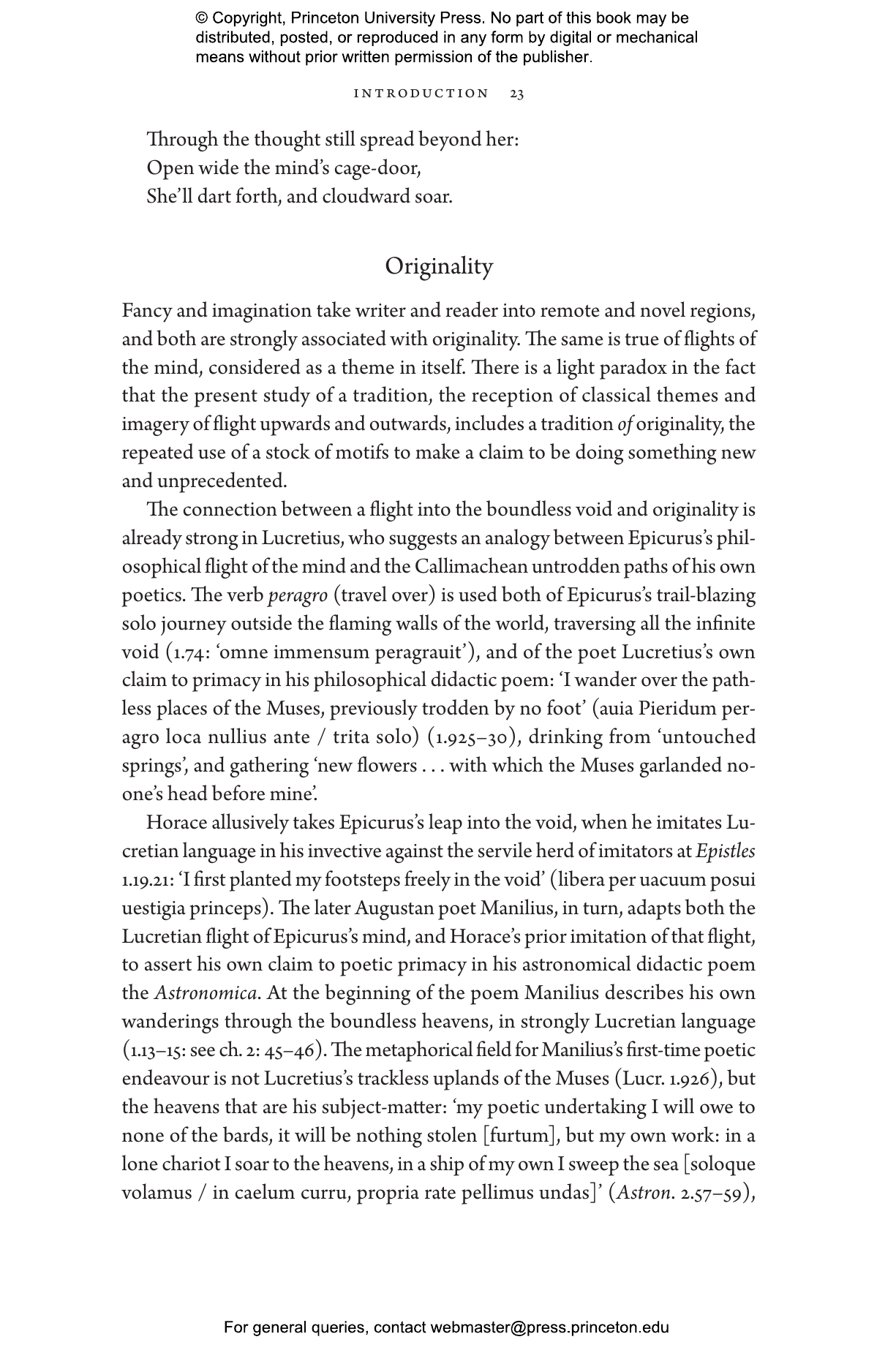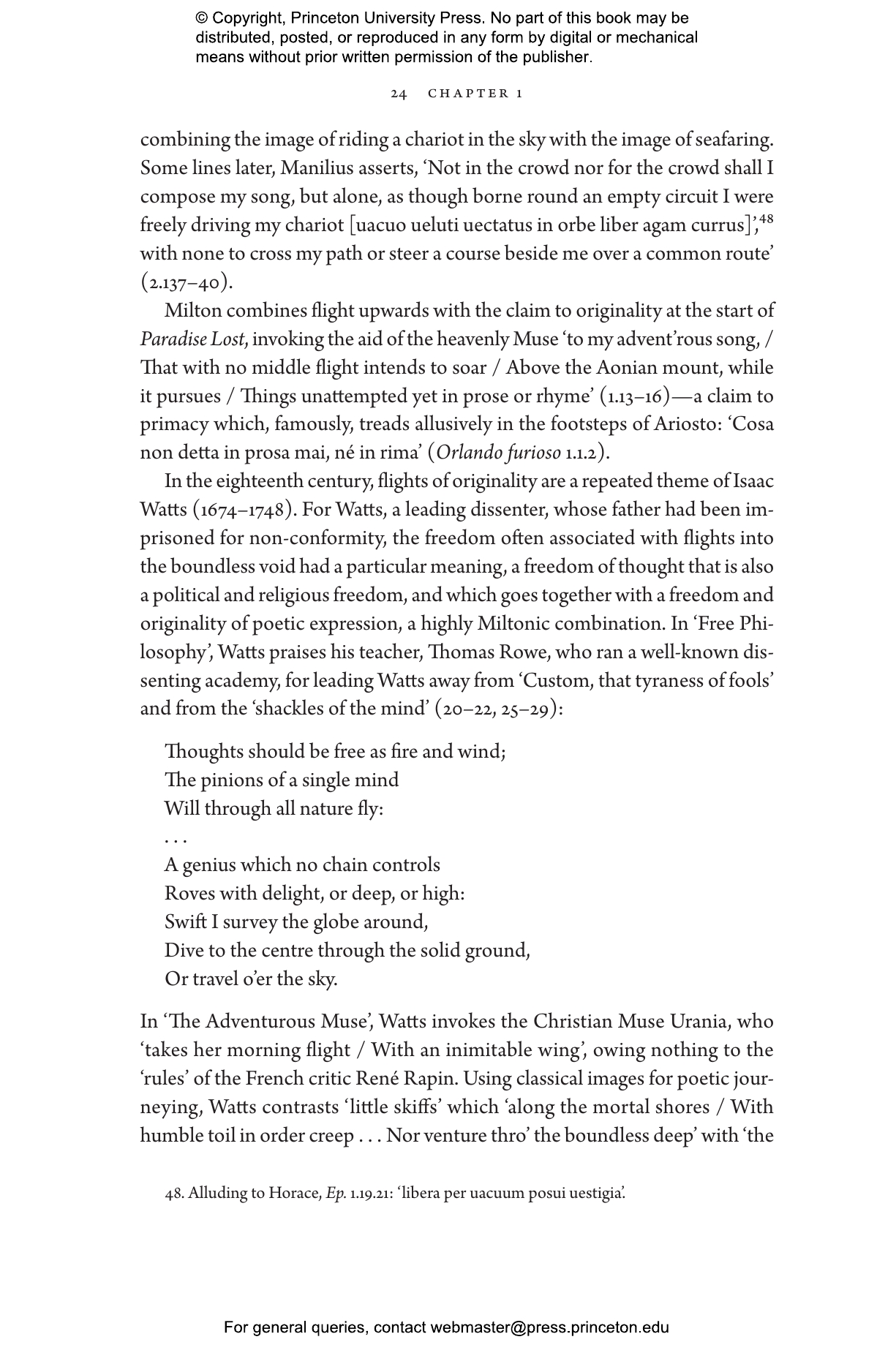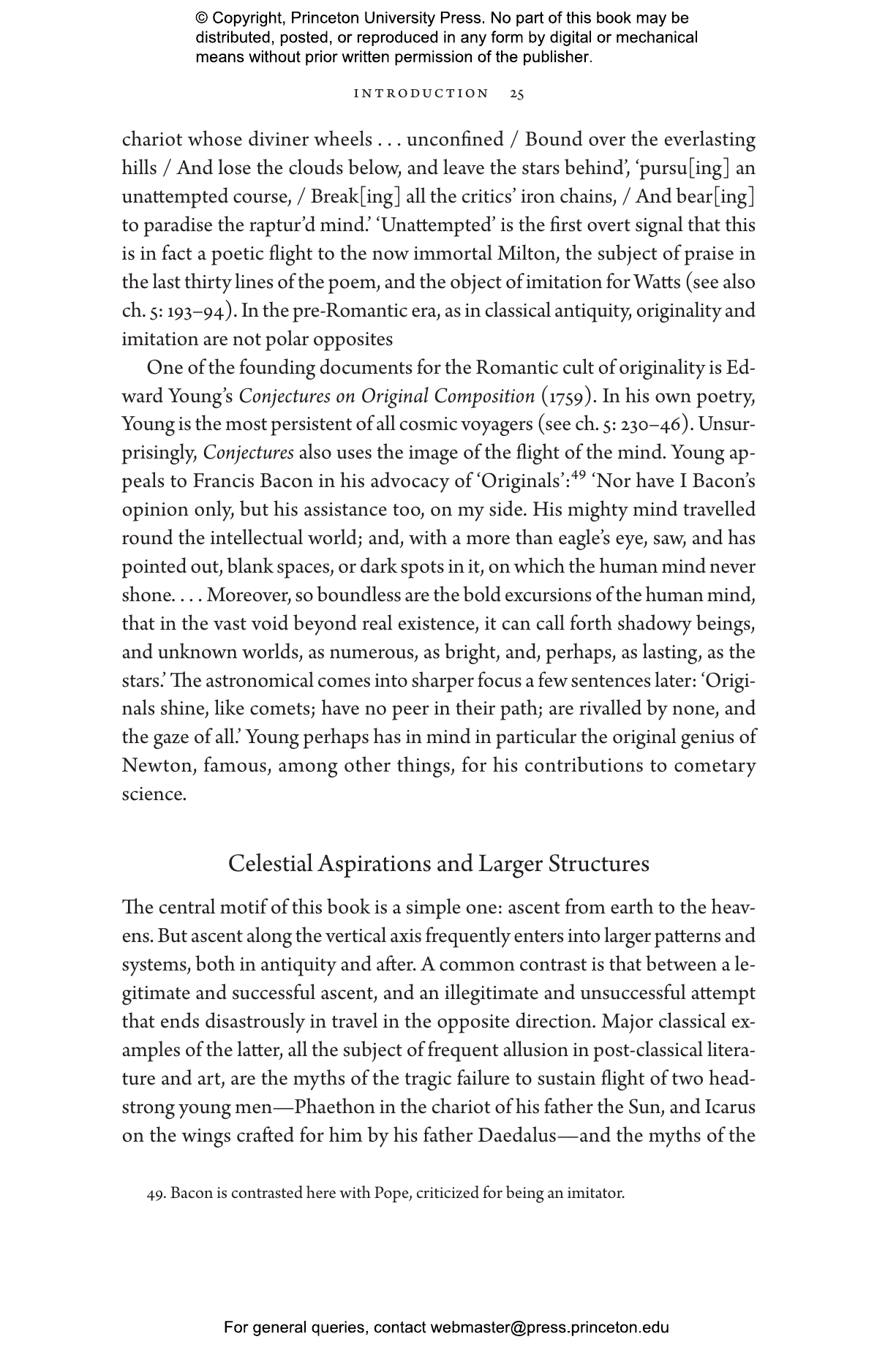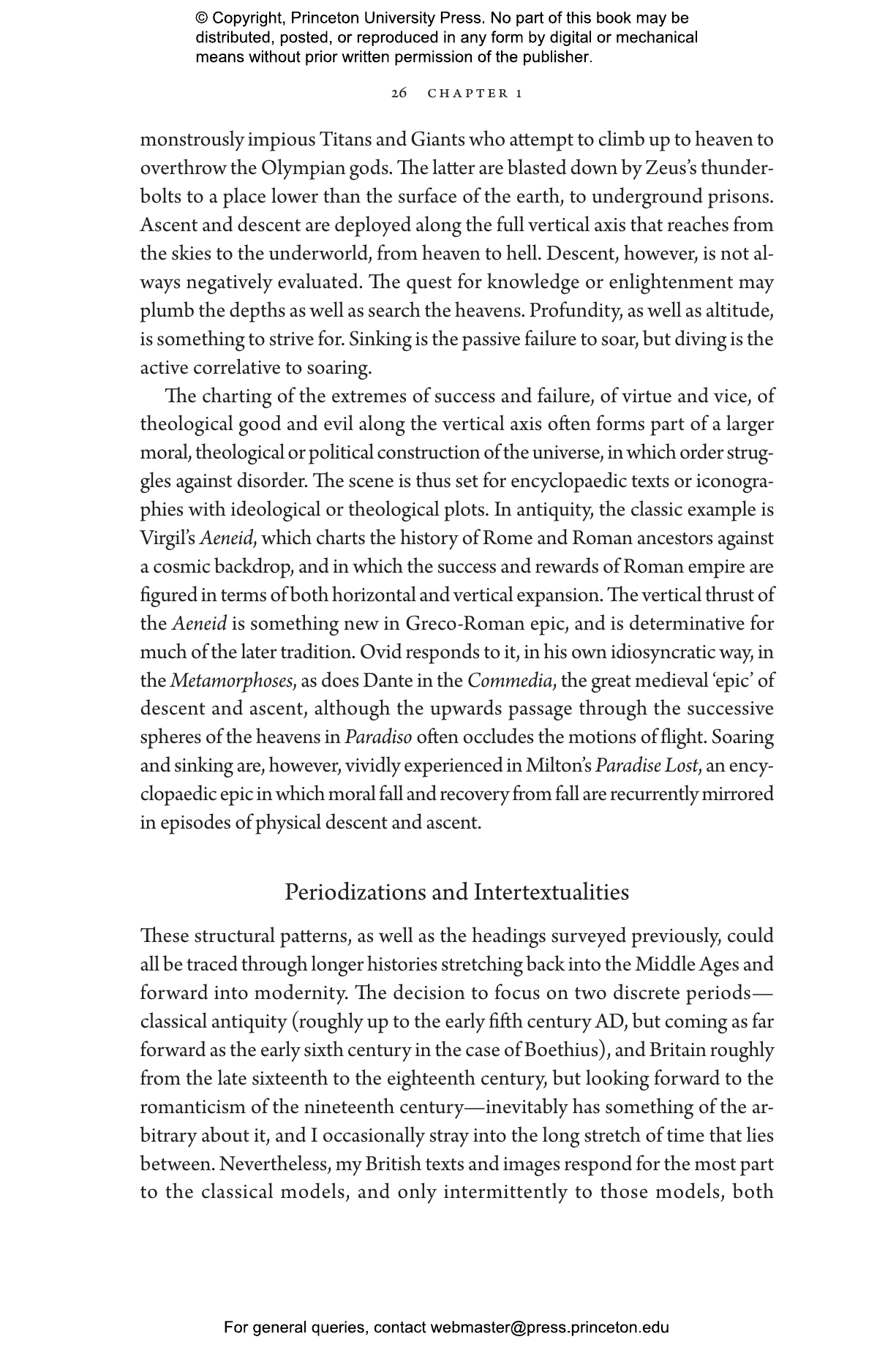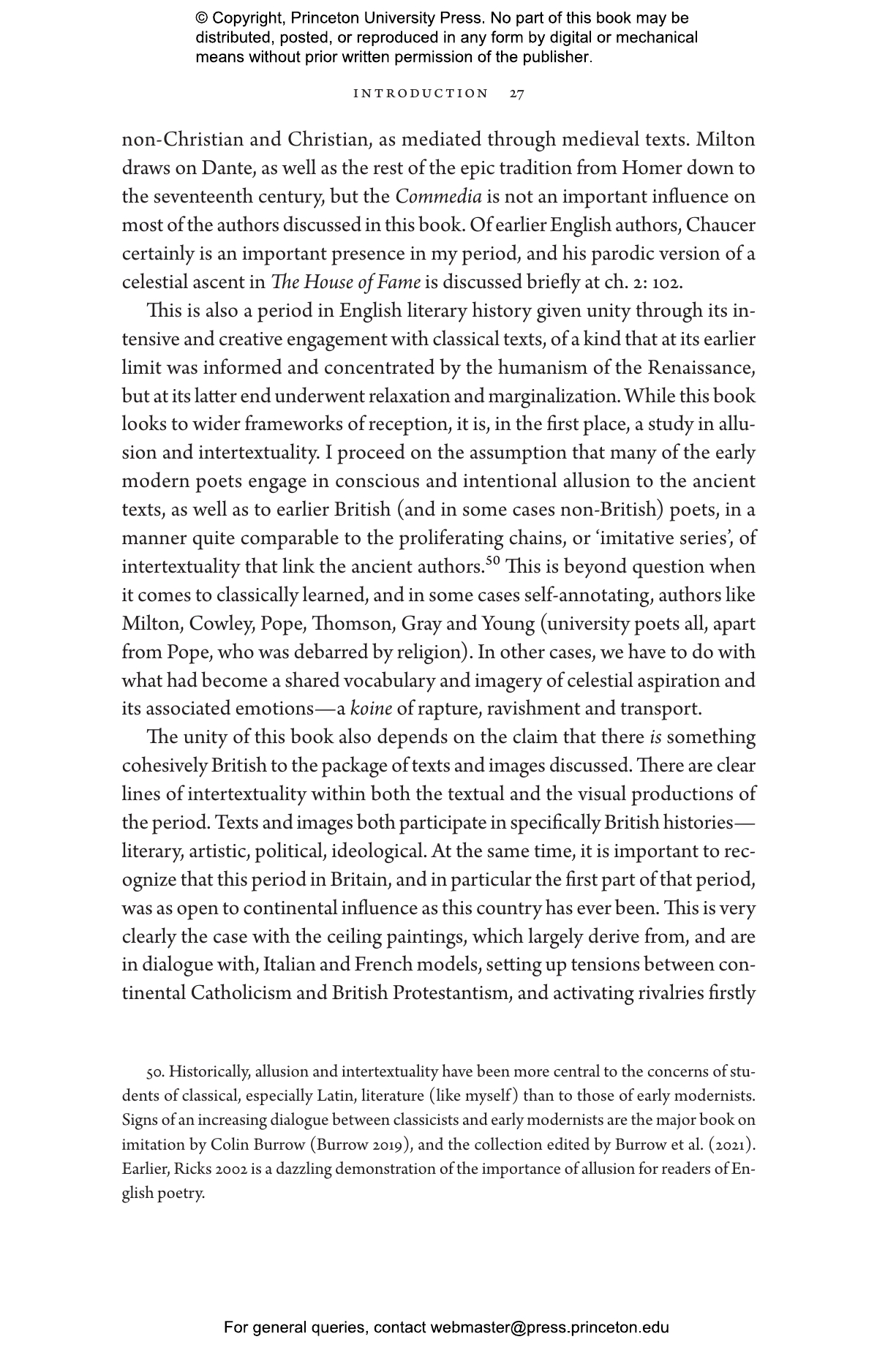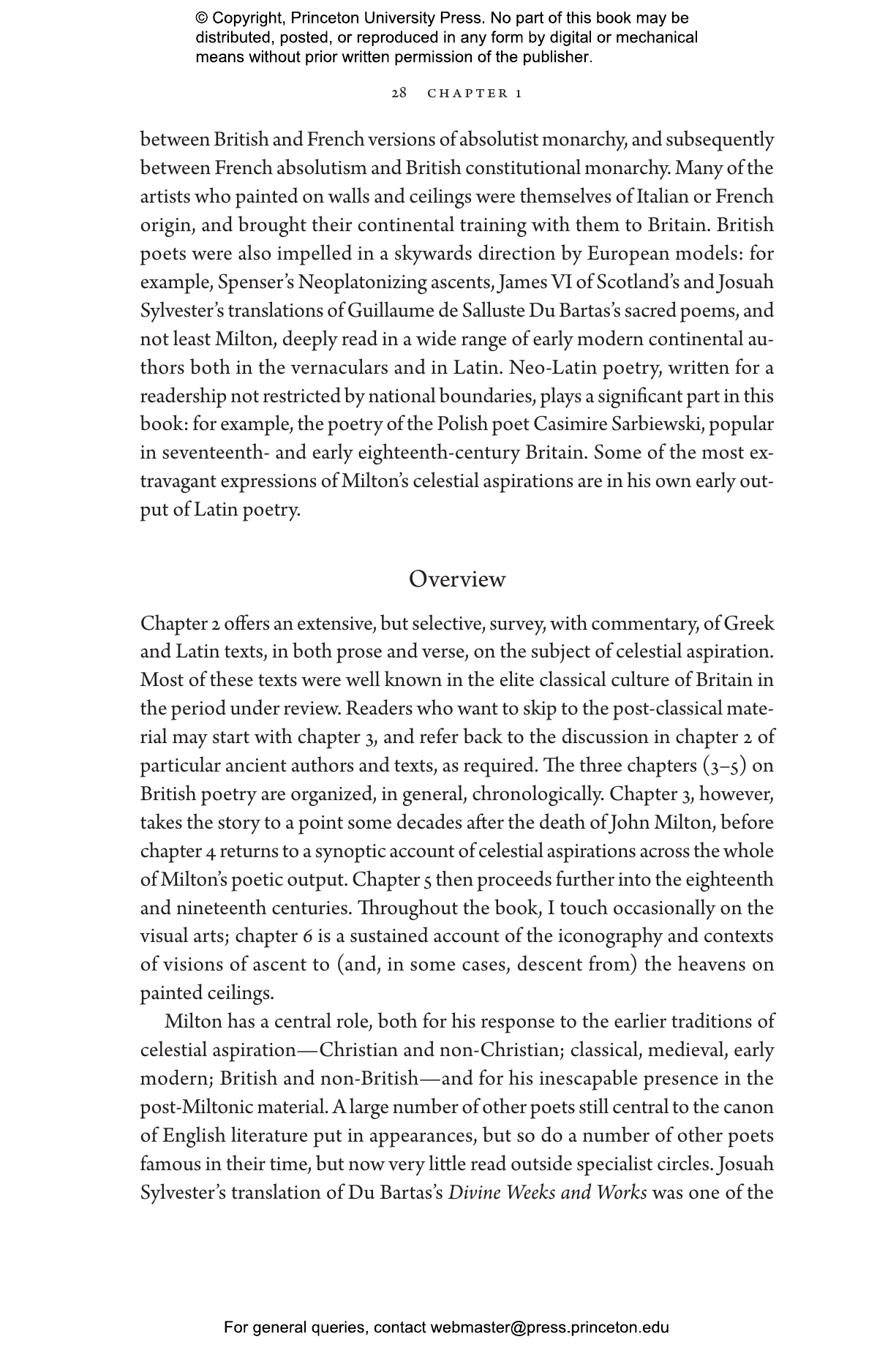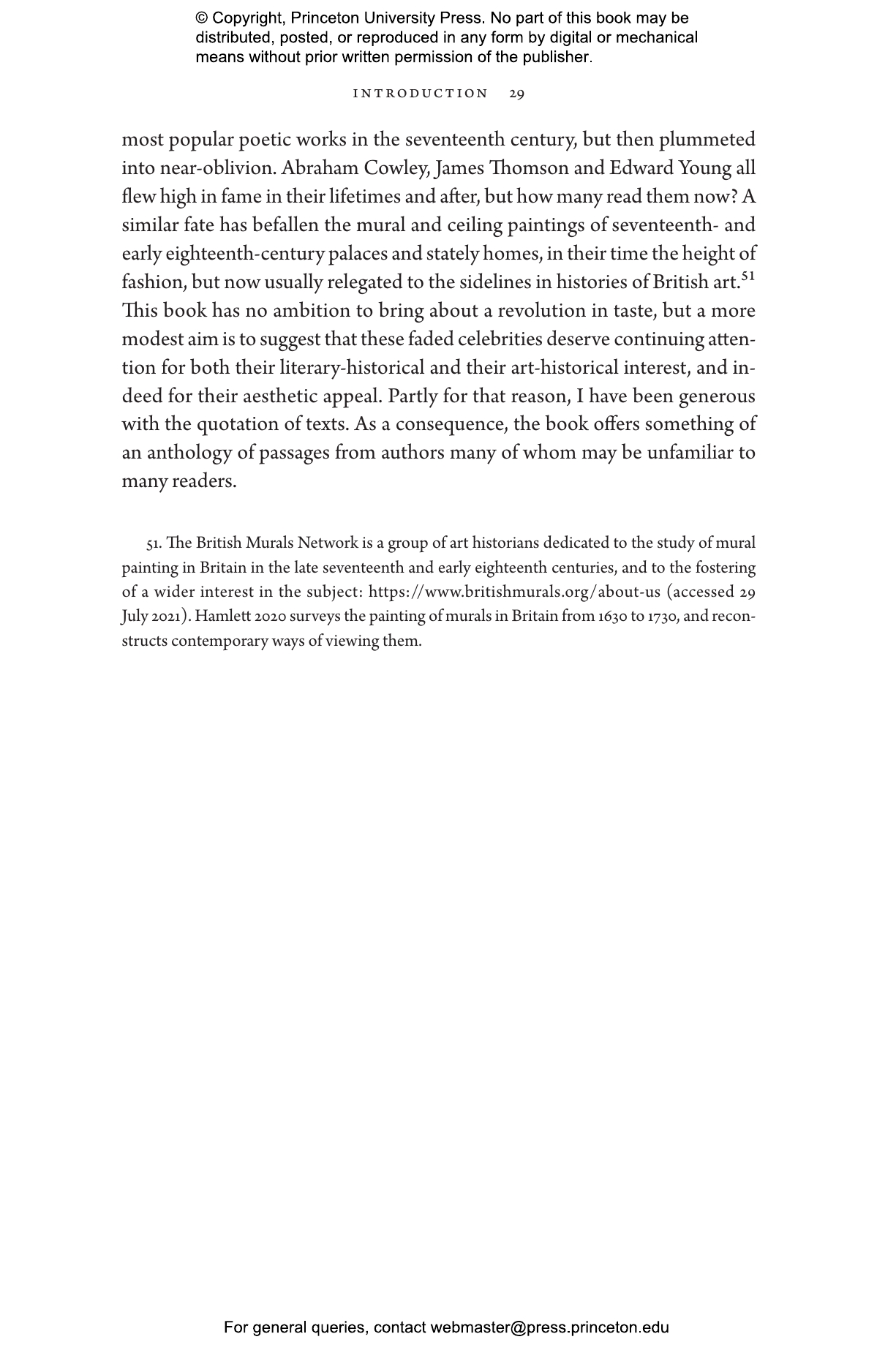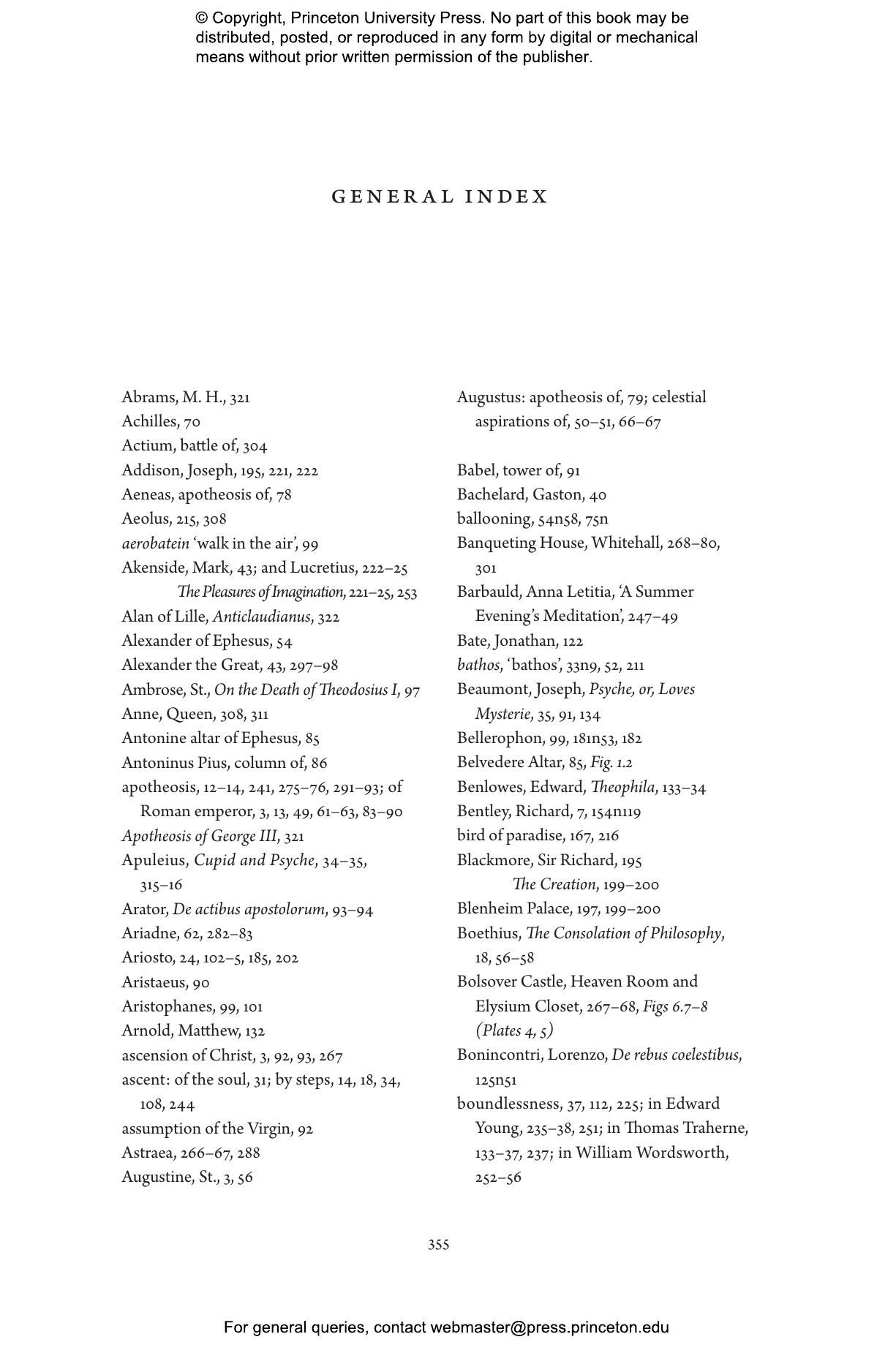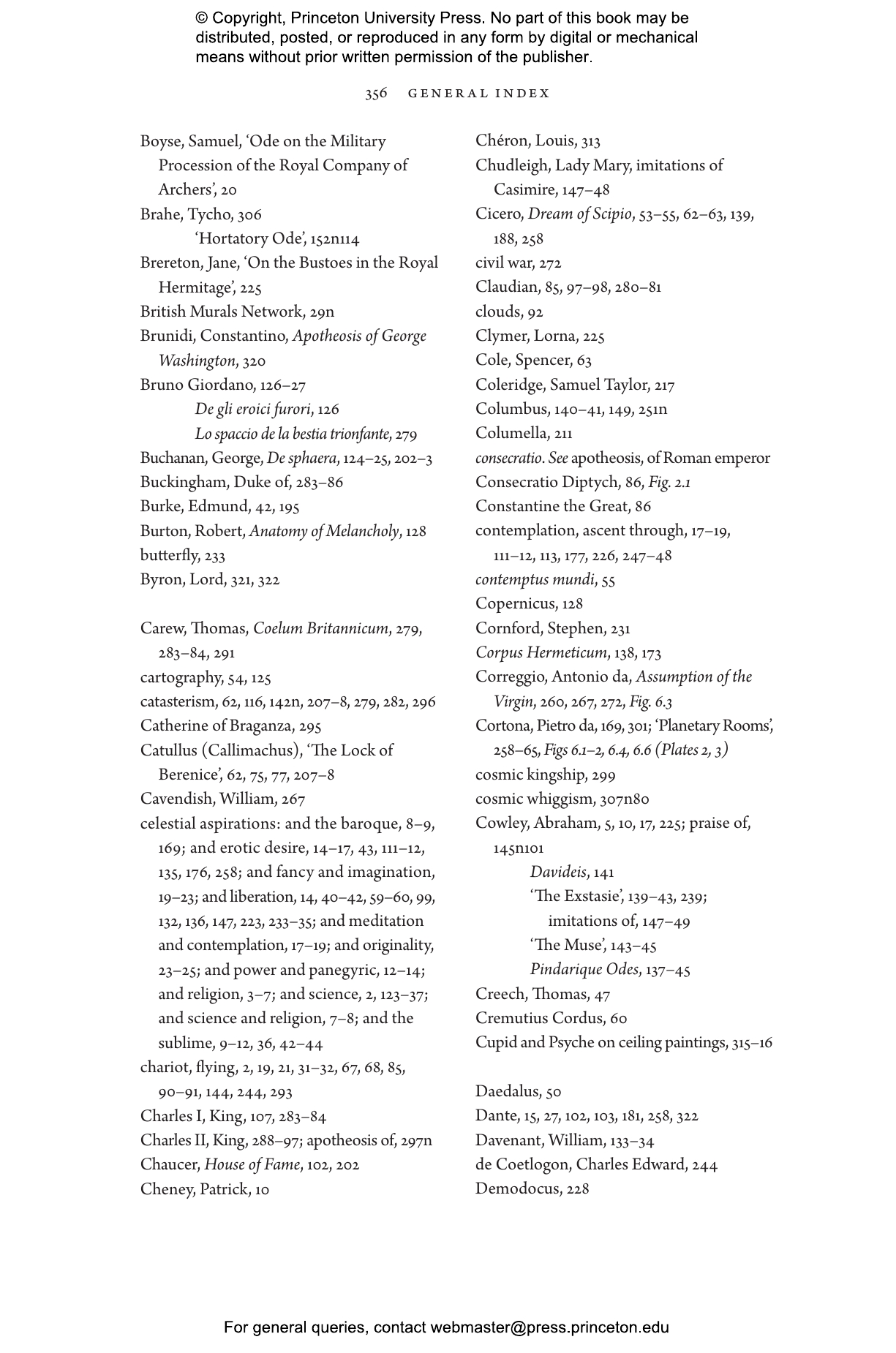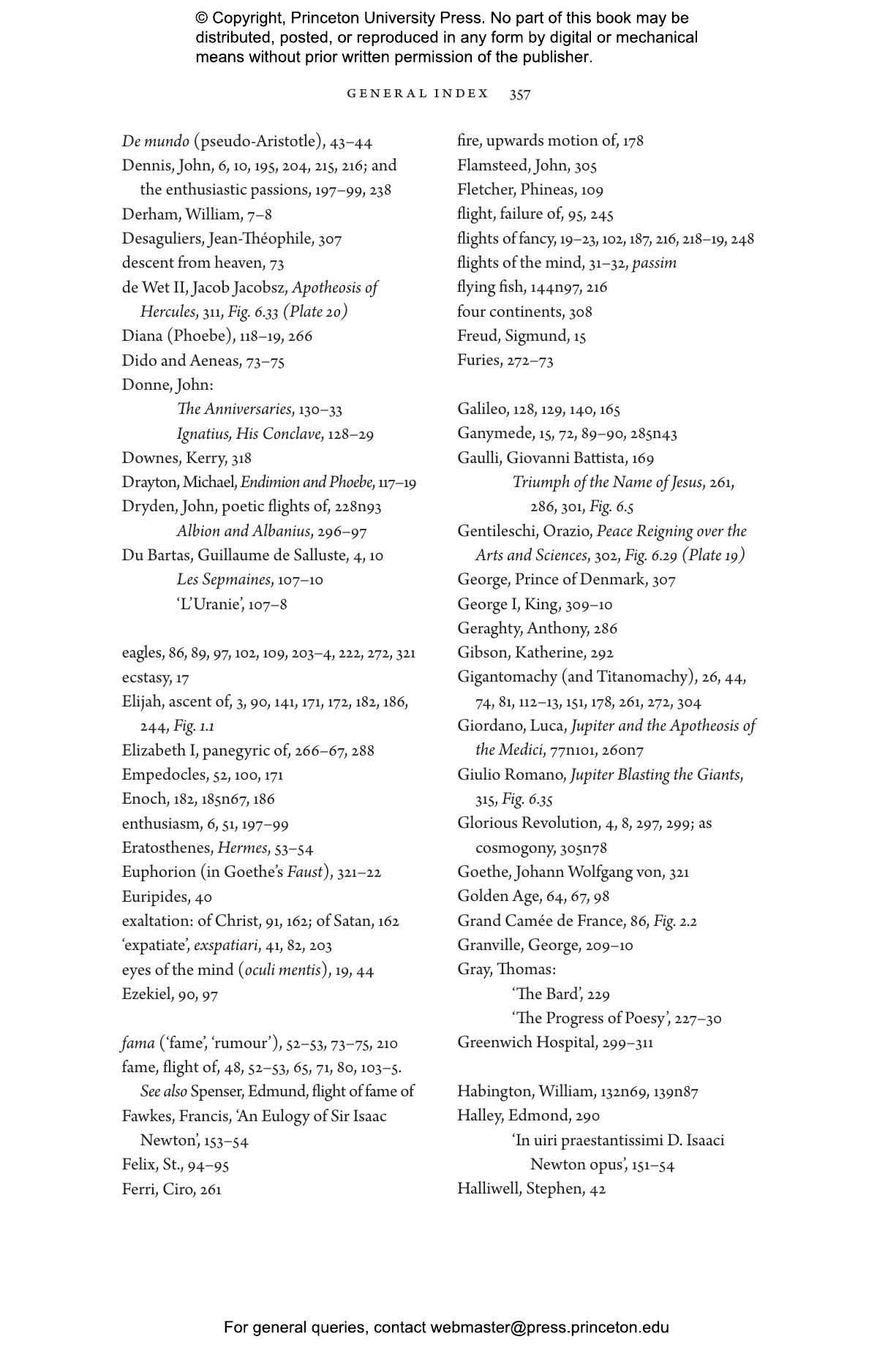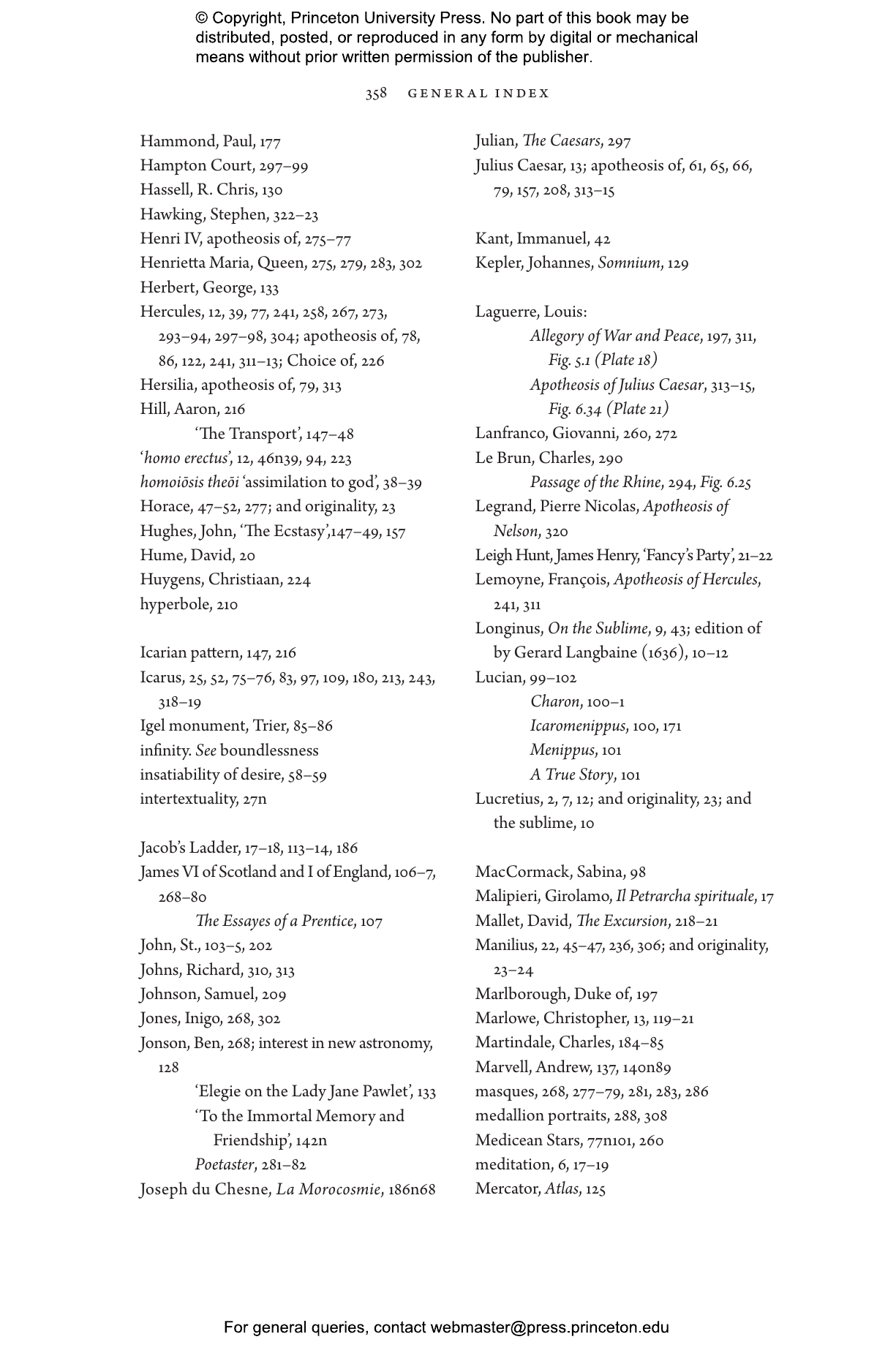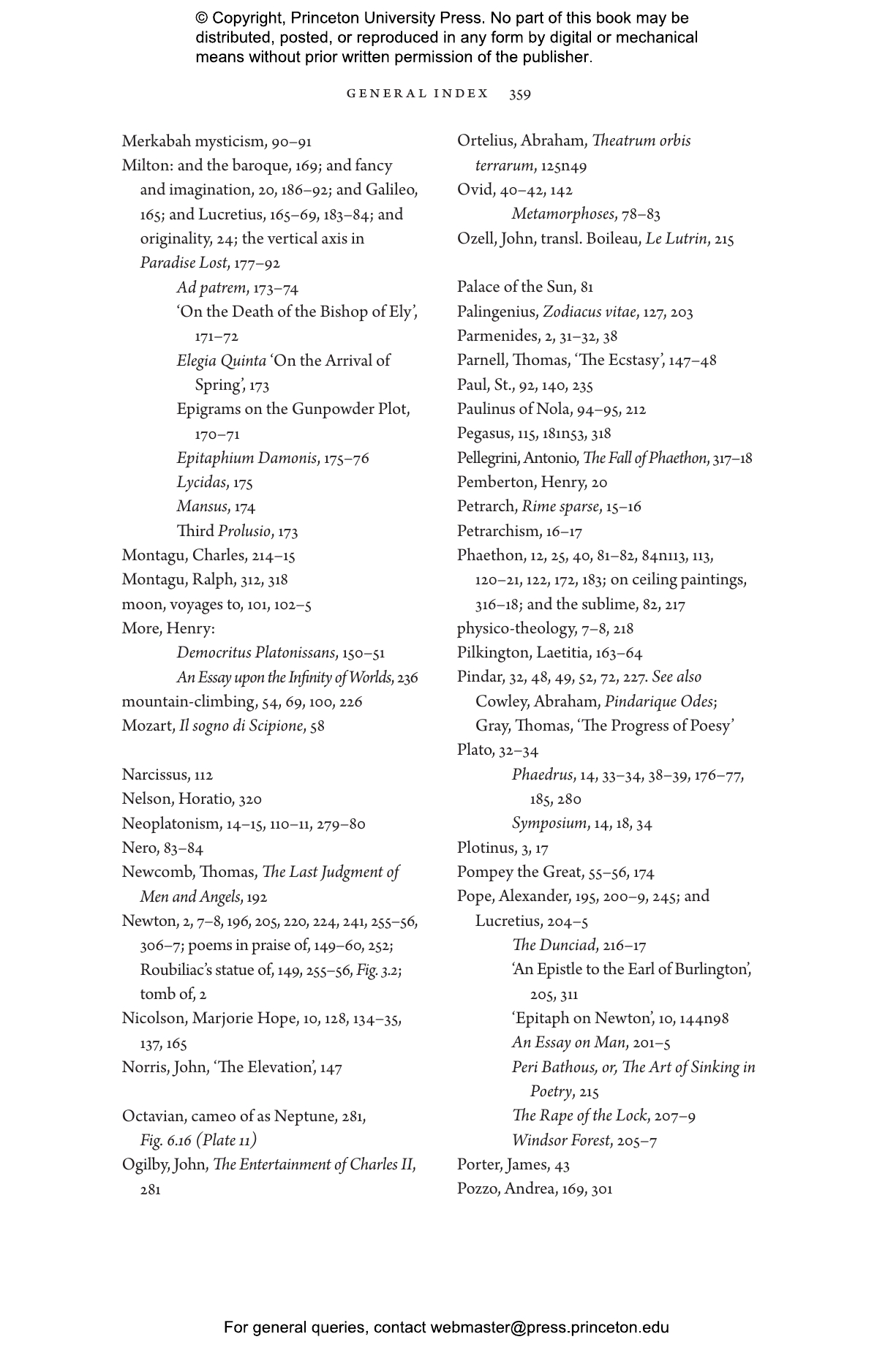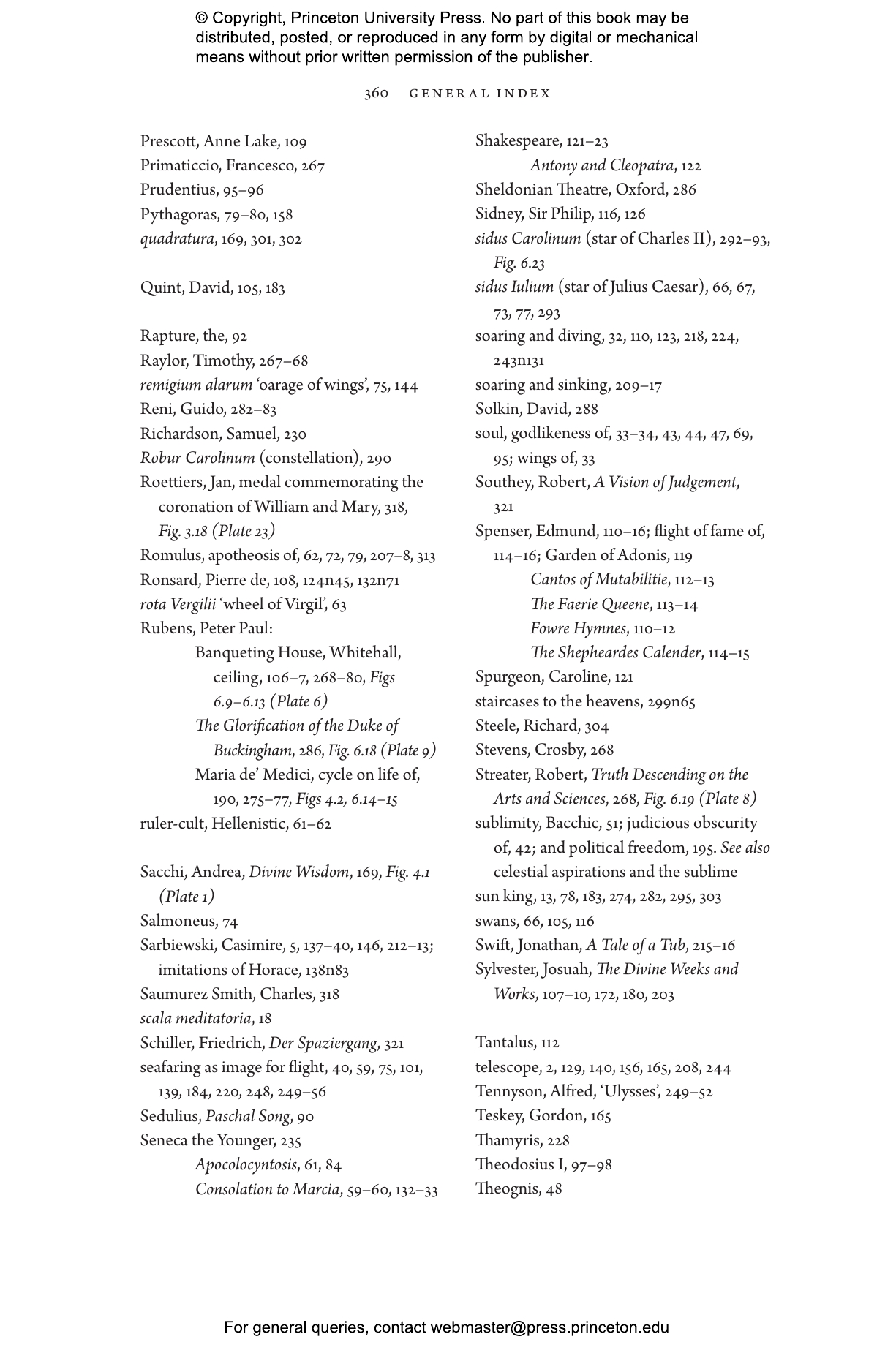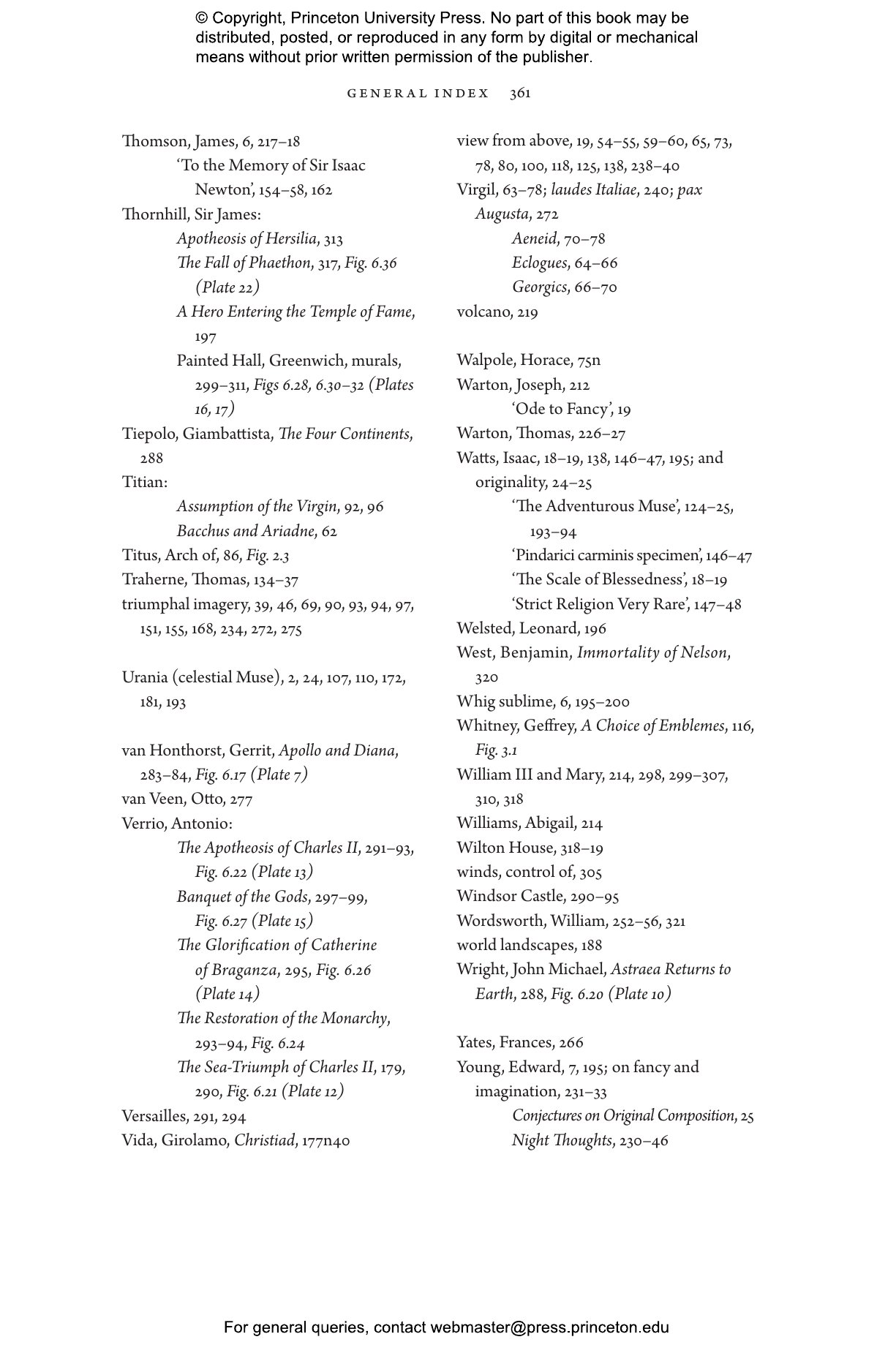Between the late sixteenth century and early nineteenth century, the British imagination—poetic, political, intellectual, spiritual and religious—displayed a pronounced fascination with images of ascent and flight to the heavens. Celestial Aspirations explores how British literature and art during that period exploited classical representations of these soaring themes—through philosophical, scientific and poetic flights of the mind; the ascension of the disembodied soul; and the celestial glorification of the ruler.
From textual reachings for the heavens in Spenser, Marlowe, Shakespeare, Donne and Cowley, to the ceiling paintings of Rubens, Verrio and Thornhill, Philip Hardie focuses on the ways that the history, ideologies and aesthetics of the postclassical world received and transformed the ideas of antiquity. In England, narratives of ascent appear on the grandest scale in Milton’s Paradise Lost, an epic built around a Christian plot of falling and rising, and one of the most intensely classicizing works of English poetry. Examining the reception of flight up to the Romanticism of Wordsworth and Tennyson, Hardie considers the Whig sublime, as well as the works of Alexander Pope and Edward Young. Throughout, he looks at motivations both public and private for aspiring to the heavens—as a reward for political and military achievement on the one hand, and as a goal of individual intellectual and spiritual exertion on the other.
Celestial Aspirations offers an intriguing look at how creative minds reworked ancient visions of time and space in the early modern era.
Philip Hardie is a Fellow of Trinity College, Cambridge, and Honorary Professor Emeritus of Latin at the University of Cambridge. His many books include Rumour and Renown and The Last Trojan Hero.
"[Hardie’s] engagement with early modern British literature and art is impressive. Scholarly yet approachable."—P. E. Ojennus, Choice
"A sublime intellectual journey that holds appeal to a wide range of audiences"—Bobby Xinyue, Times Literary Supplement
"Impressively learned."—Tobias Gregory, London Review of Books
“This almost impossibly learned book traces the literary and pictorial motif of human flight and ascension, through the heavens and expanses of space, in British literature from the late sixteenth through the early nineteenth century and in the classical tradition. It defines a topos of sublimity—of imagination, science and religious feeling—whose significance becomes clear as the examples multiply and Hardie's penetrating readings move from one important artist to the next.”—David Quint, Yale University
“Celestial Aspirations is a splendidly enterprising exploration of the major artistic, religious and political themes of ascent and flight to the heavens, traced from their classical roots through to the English poetry and art of the early modern period. This brilliant book combines comparative literary analysis with art history, moving with ease from Plato and Virgil to Milton and the great painted ceilings of Stuart and early Georgian England, and presents an impressive model of interdisciplinary classical reception.”—Stephen Harrison, University of Oxford
“Clear and authoritative, Celestial Aspirations contains many acute readings and comparisons across a very wide range of classical and early modern poetry. Hardie has an excellent reputation for this kind of literary appreciation rooted in close reading, and his skills are evident.”—Victoria Moul, University College London
“Celestial Aspirations is an extraordinarily erudite, interdisciplinary investigation of the enduring fantasy of achieving liftoff. Focusing on the reception of classical texts in Britain from the late sixteenth to the eighteenth century, Hardie's book offers new perspectives on the classical tradition and on the history of ideas.”—William Fitzgerald, King’s College London
